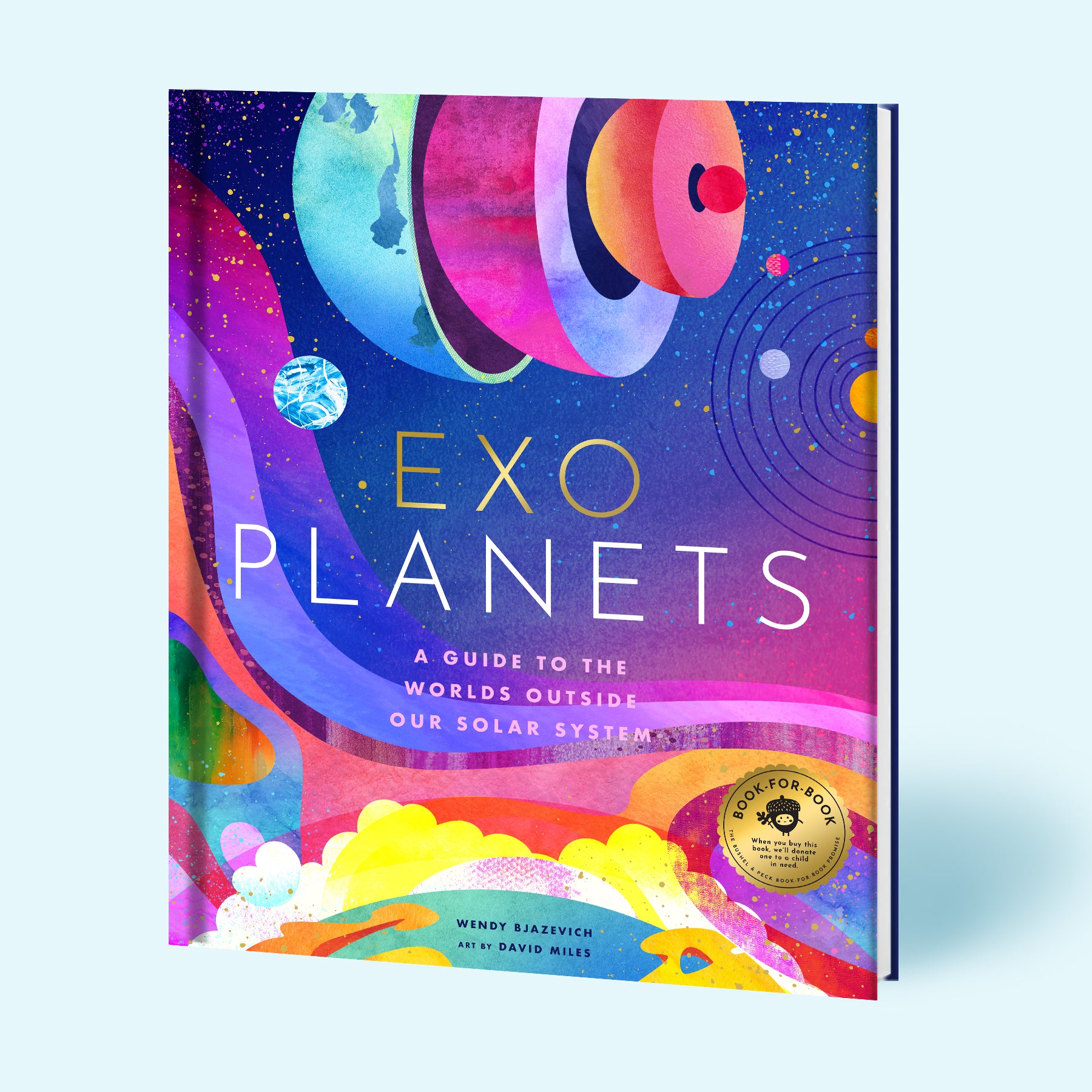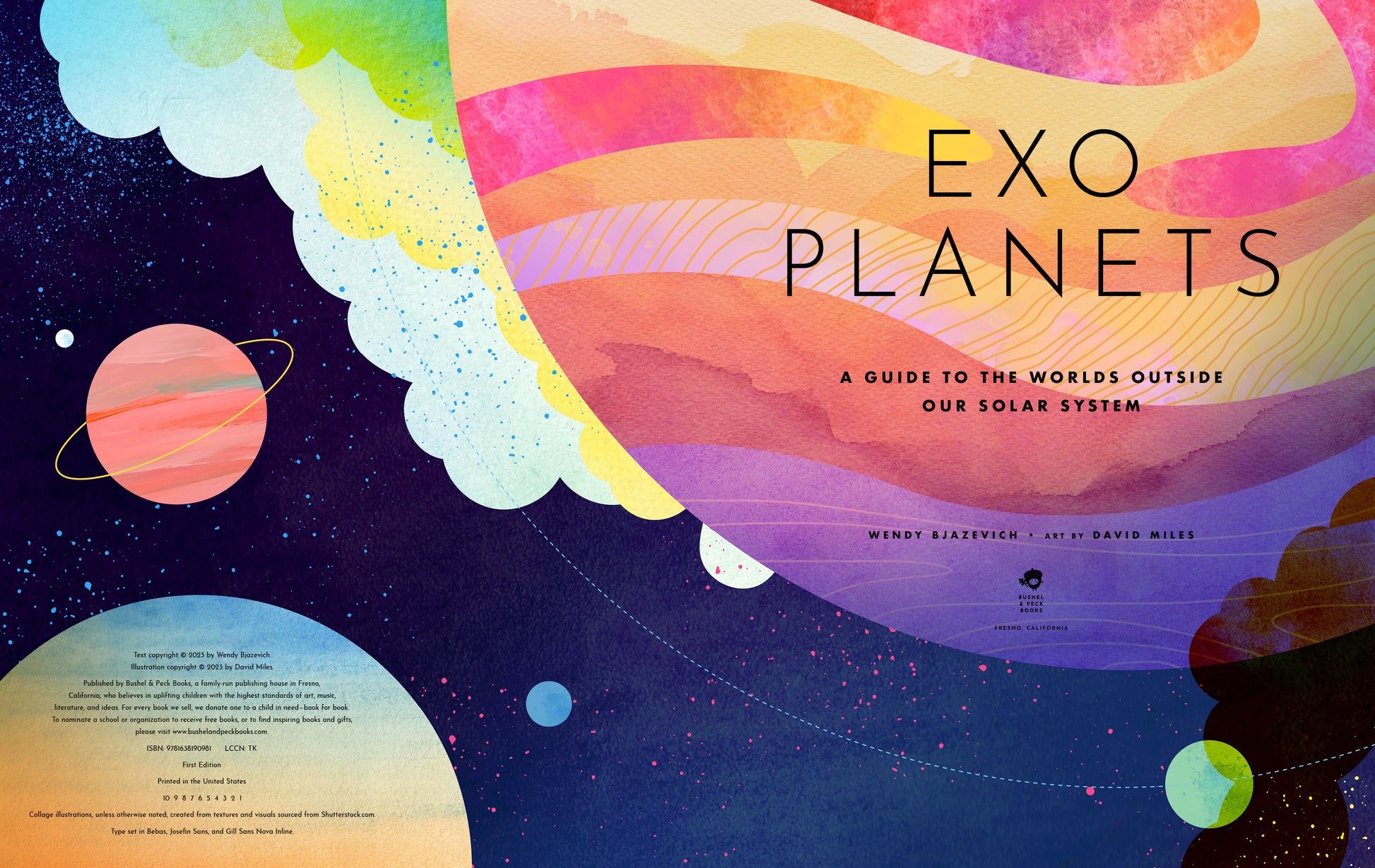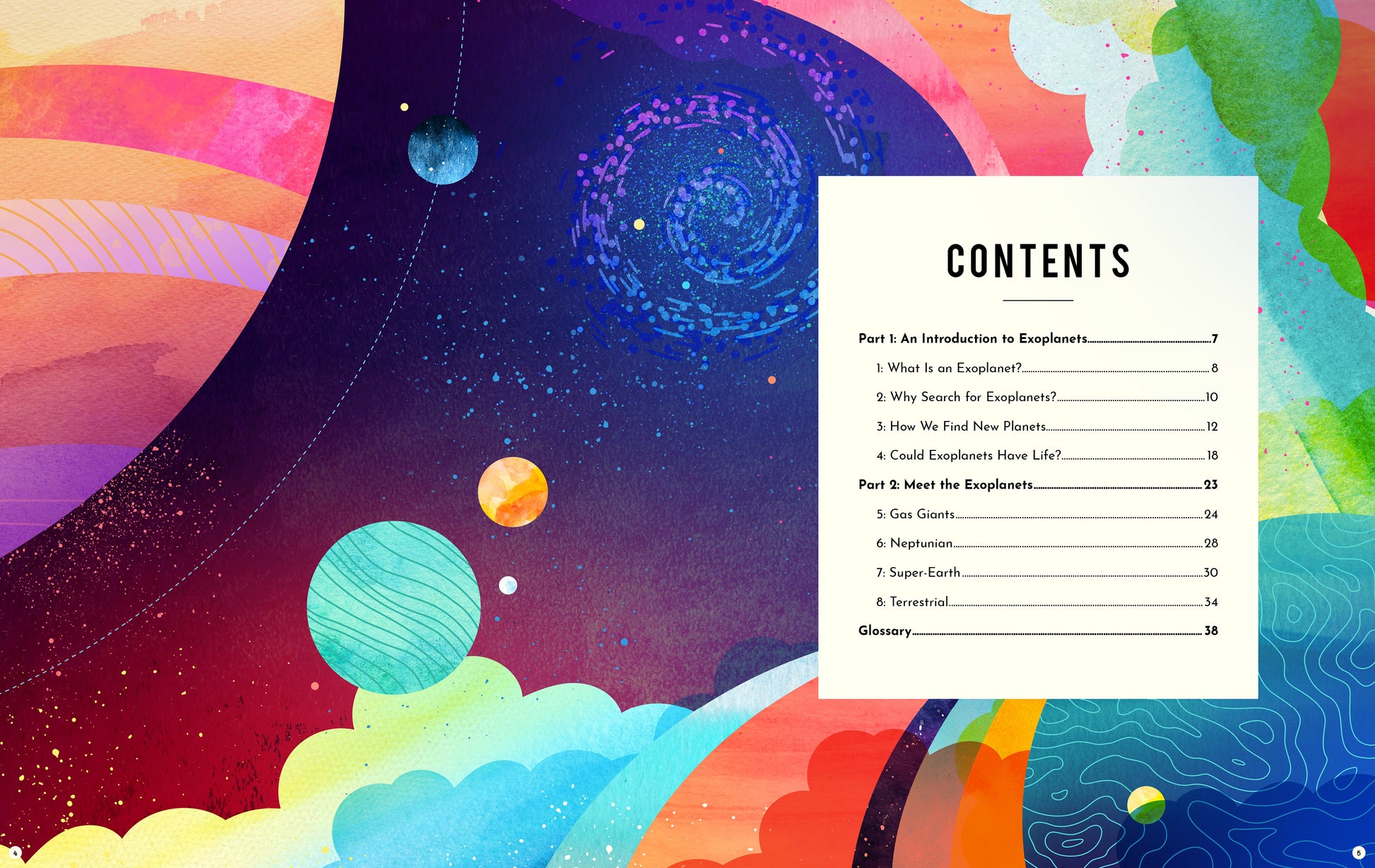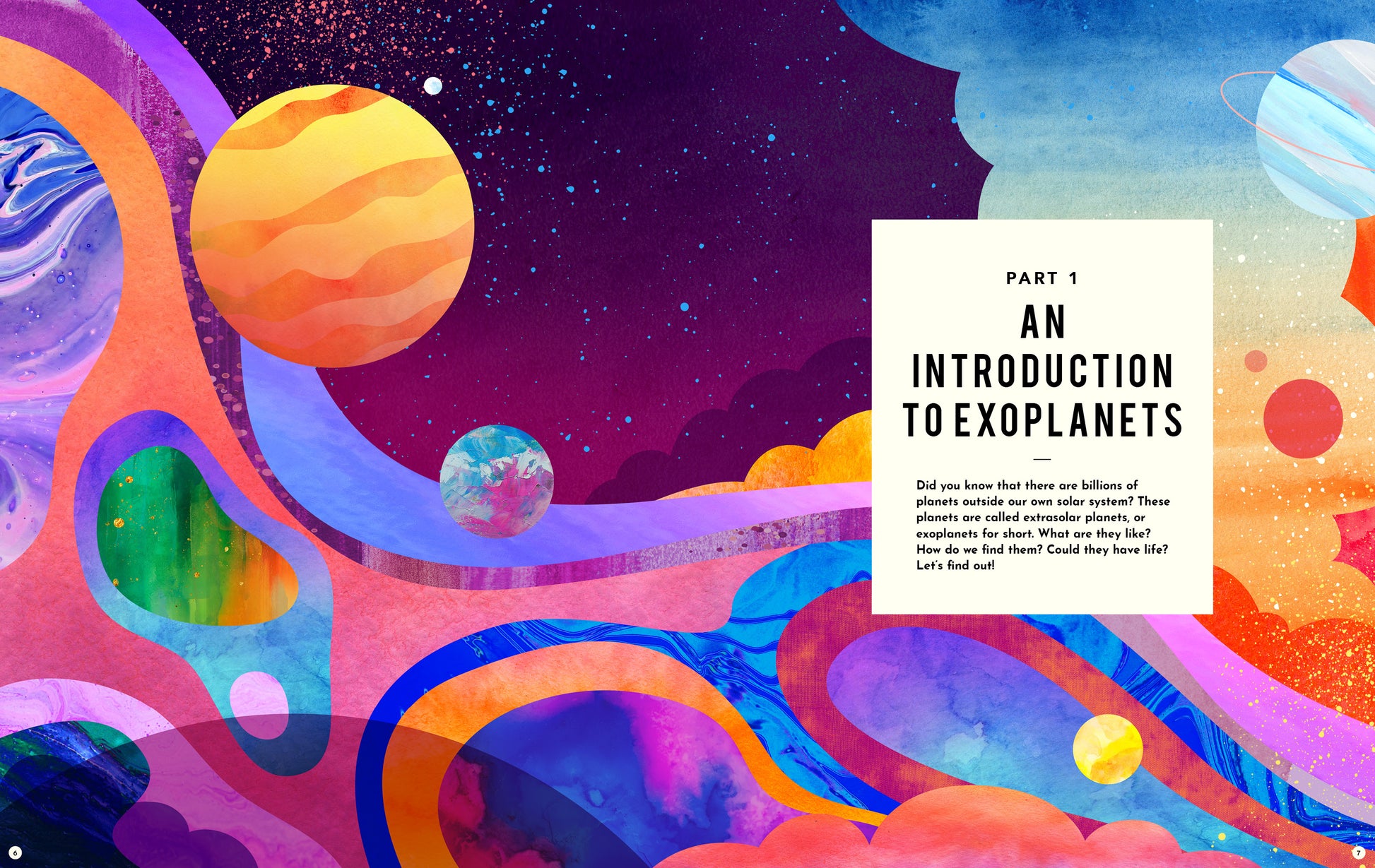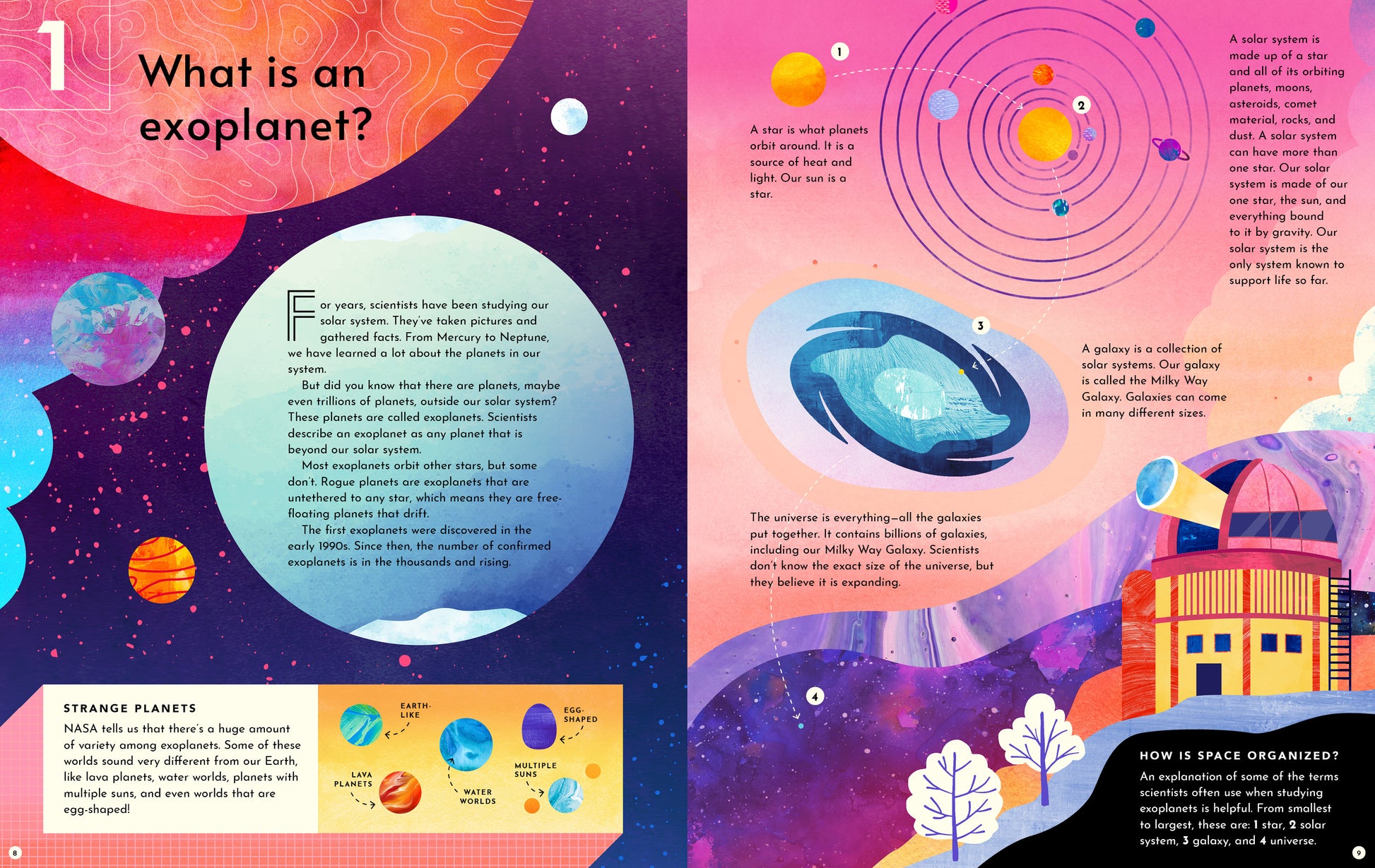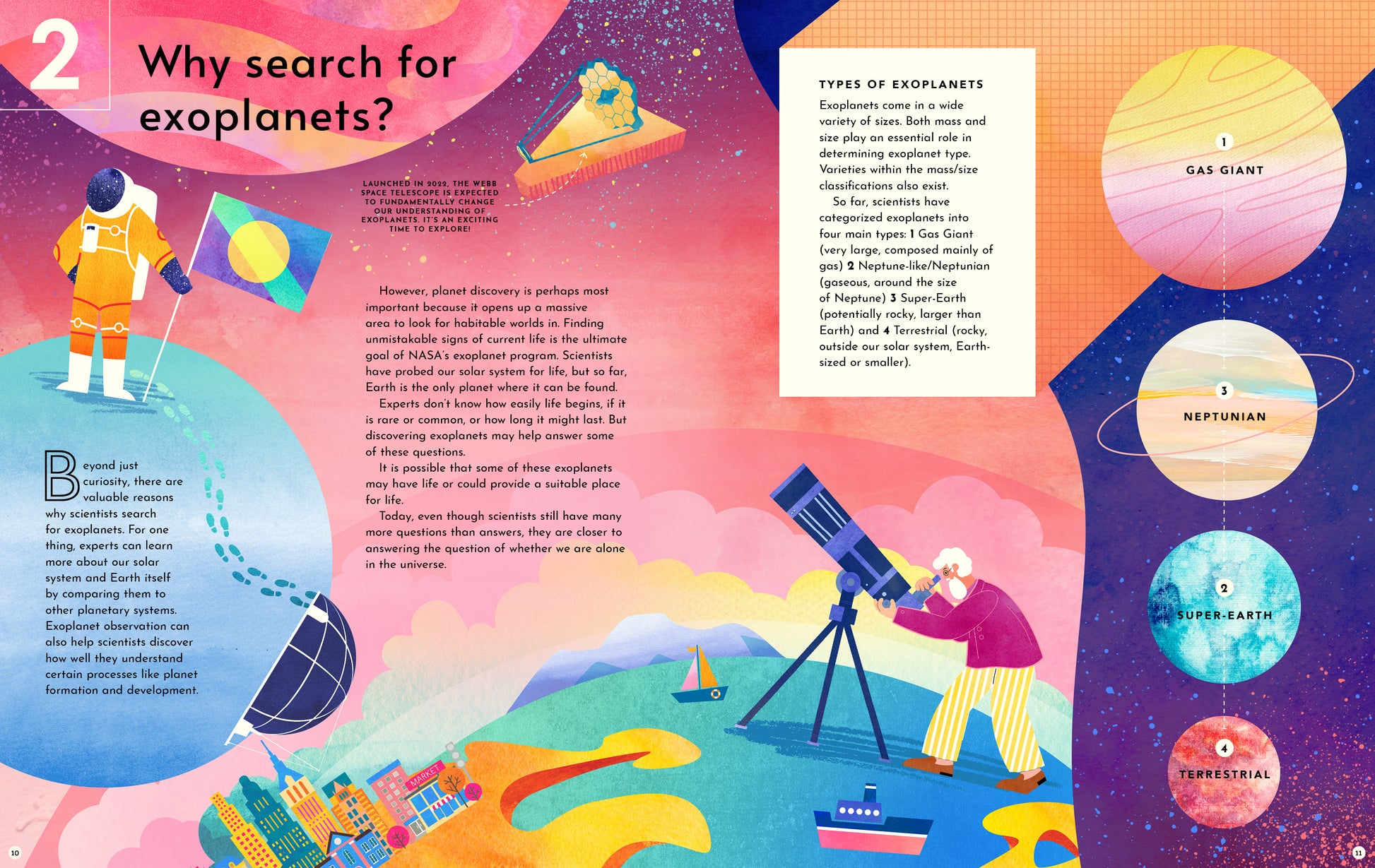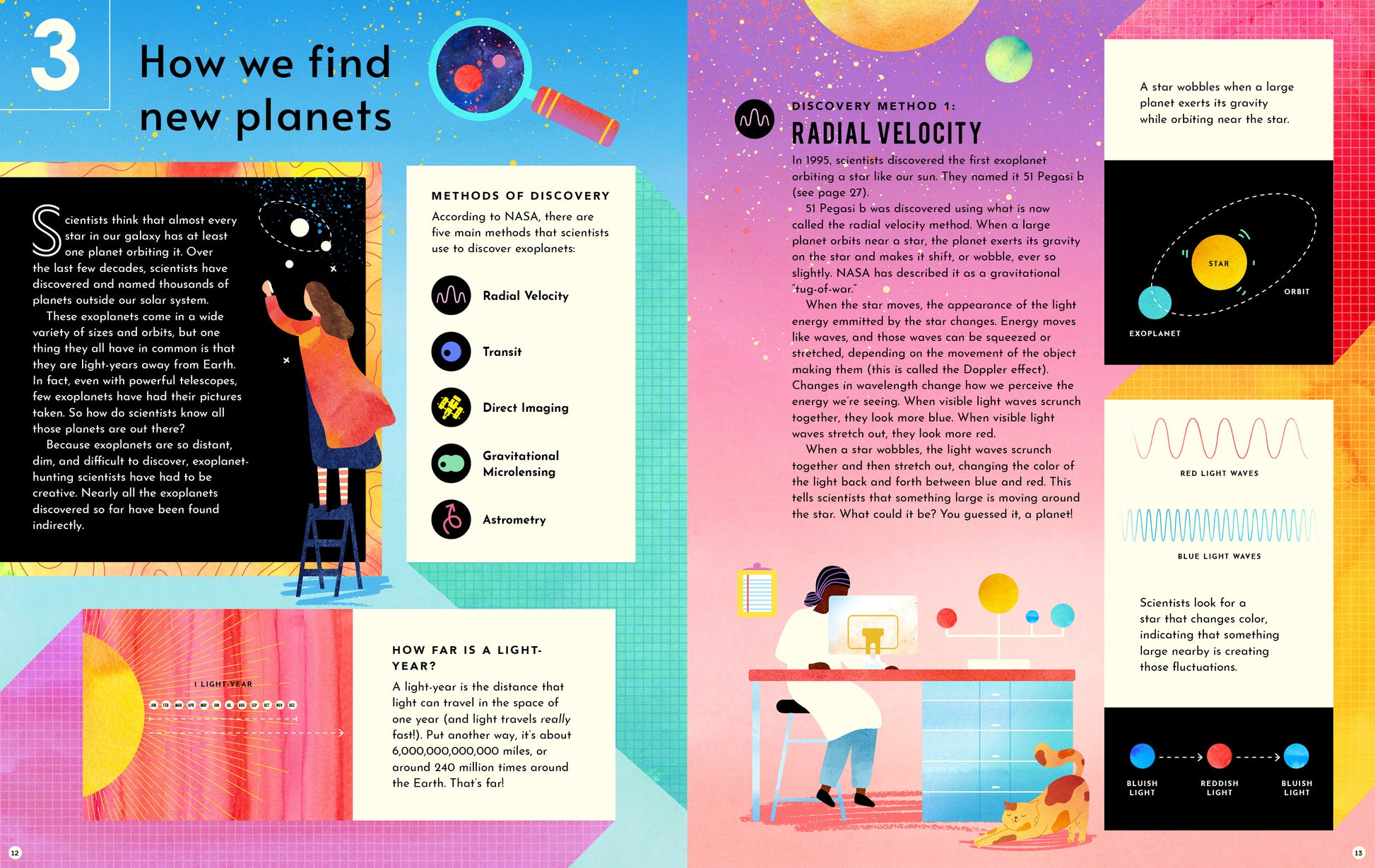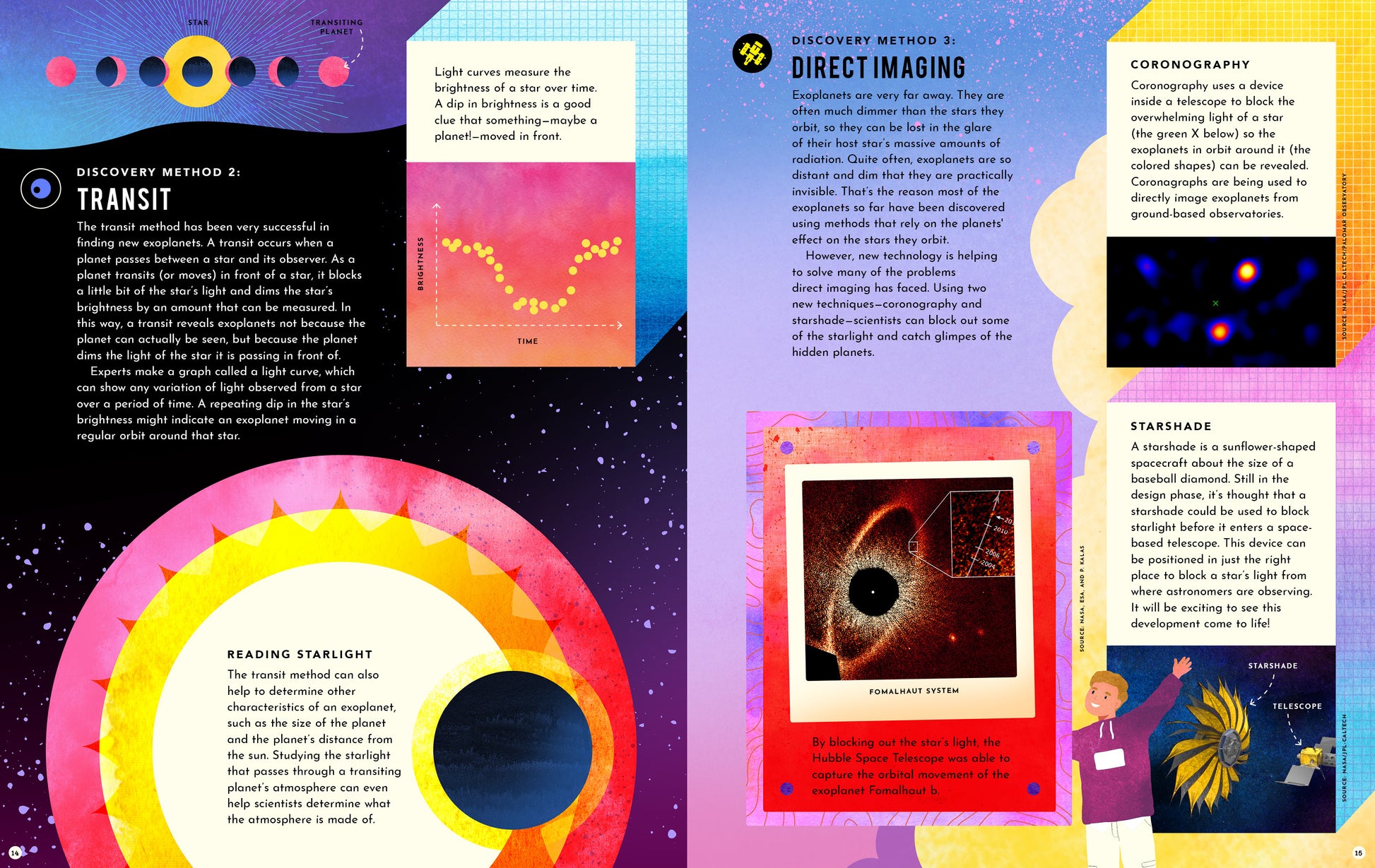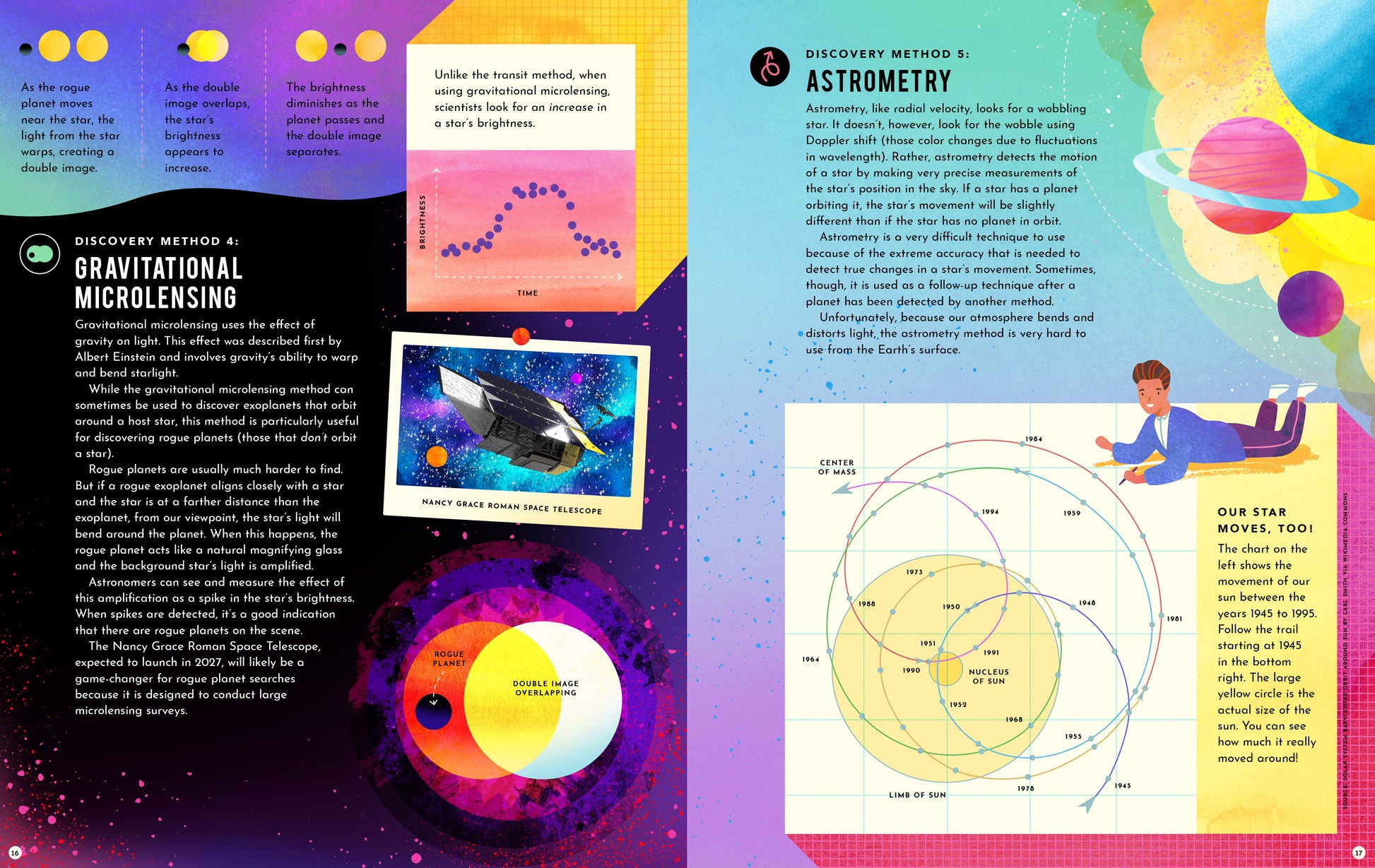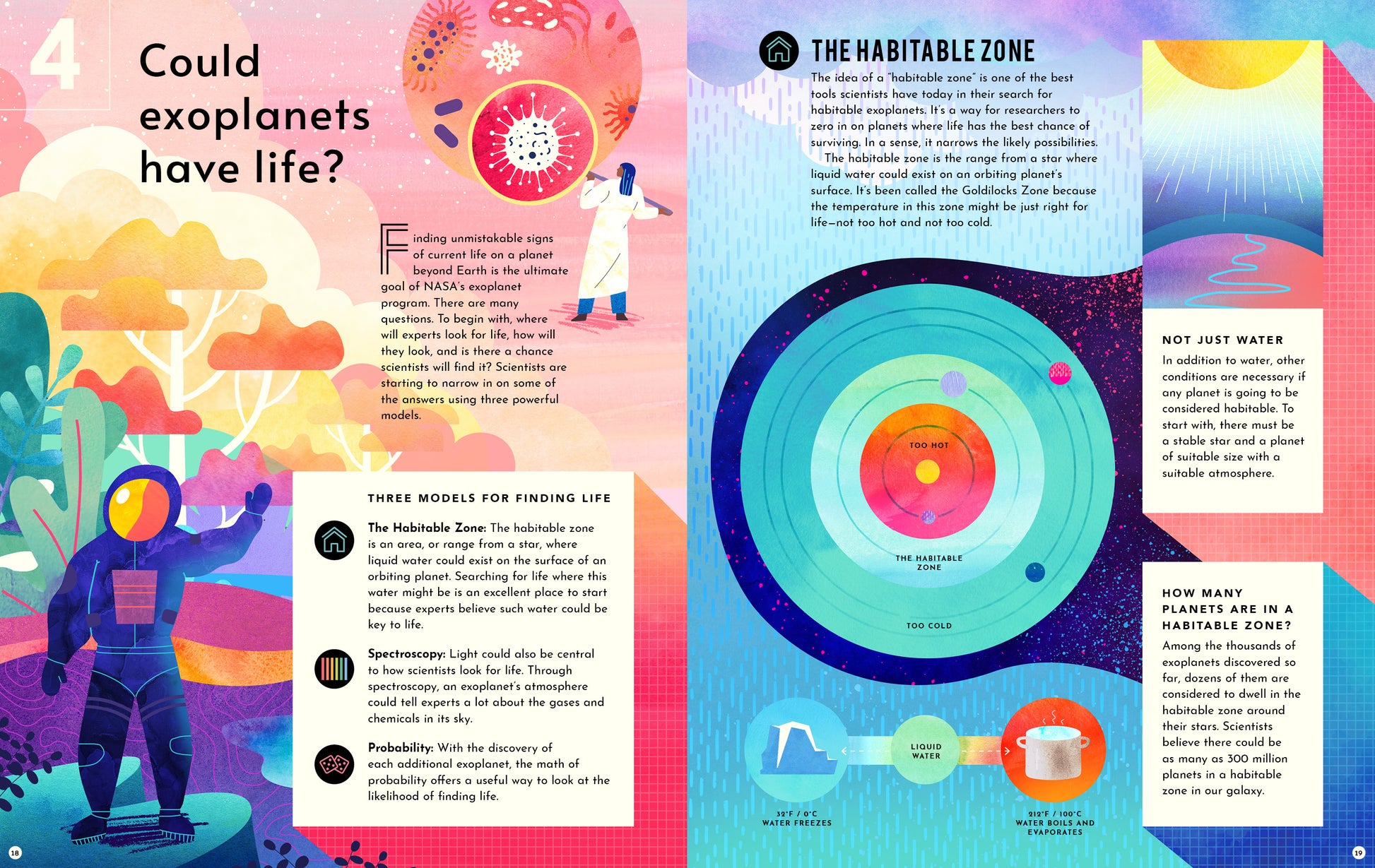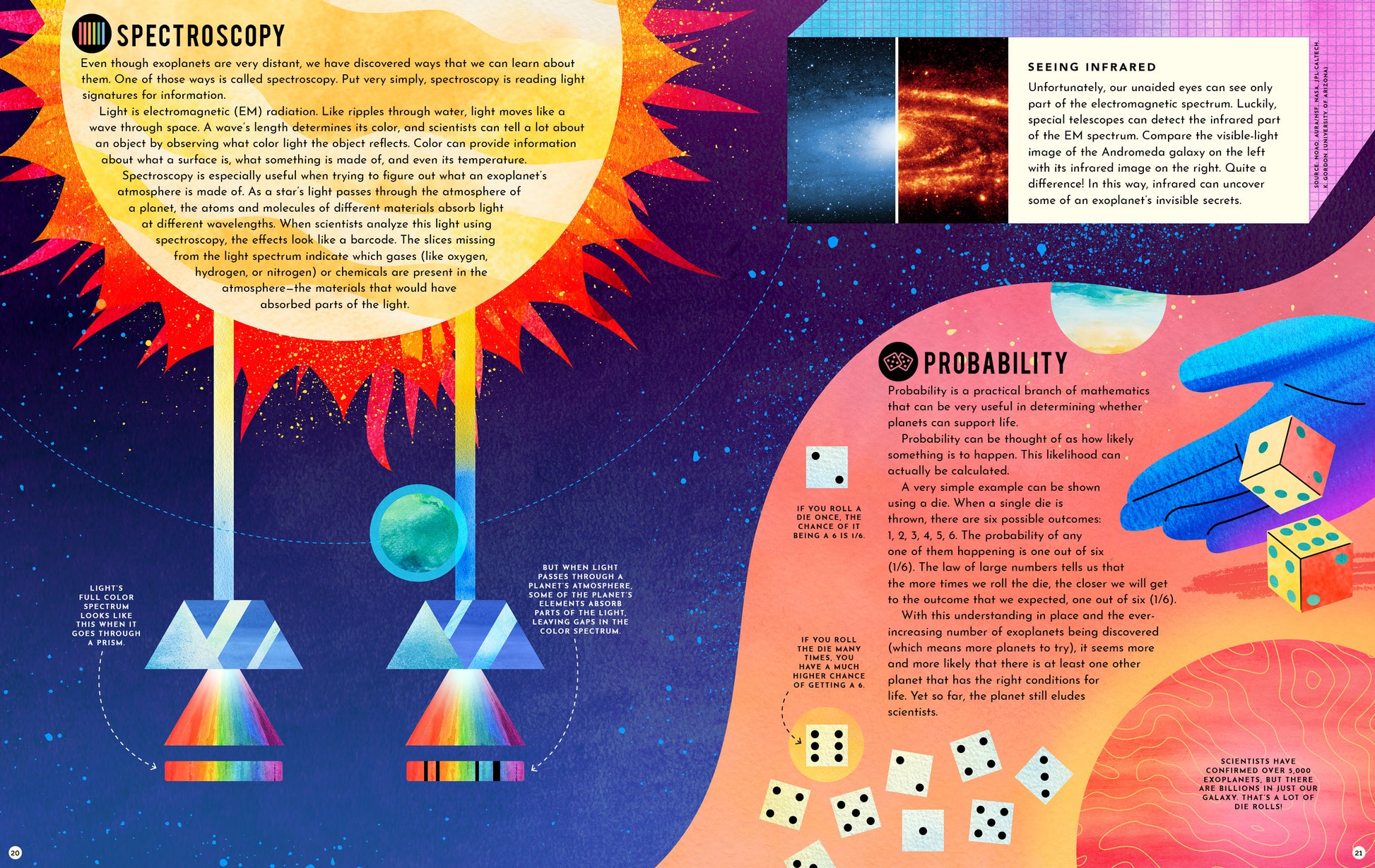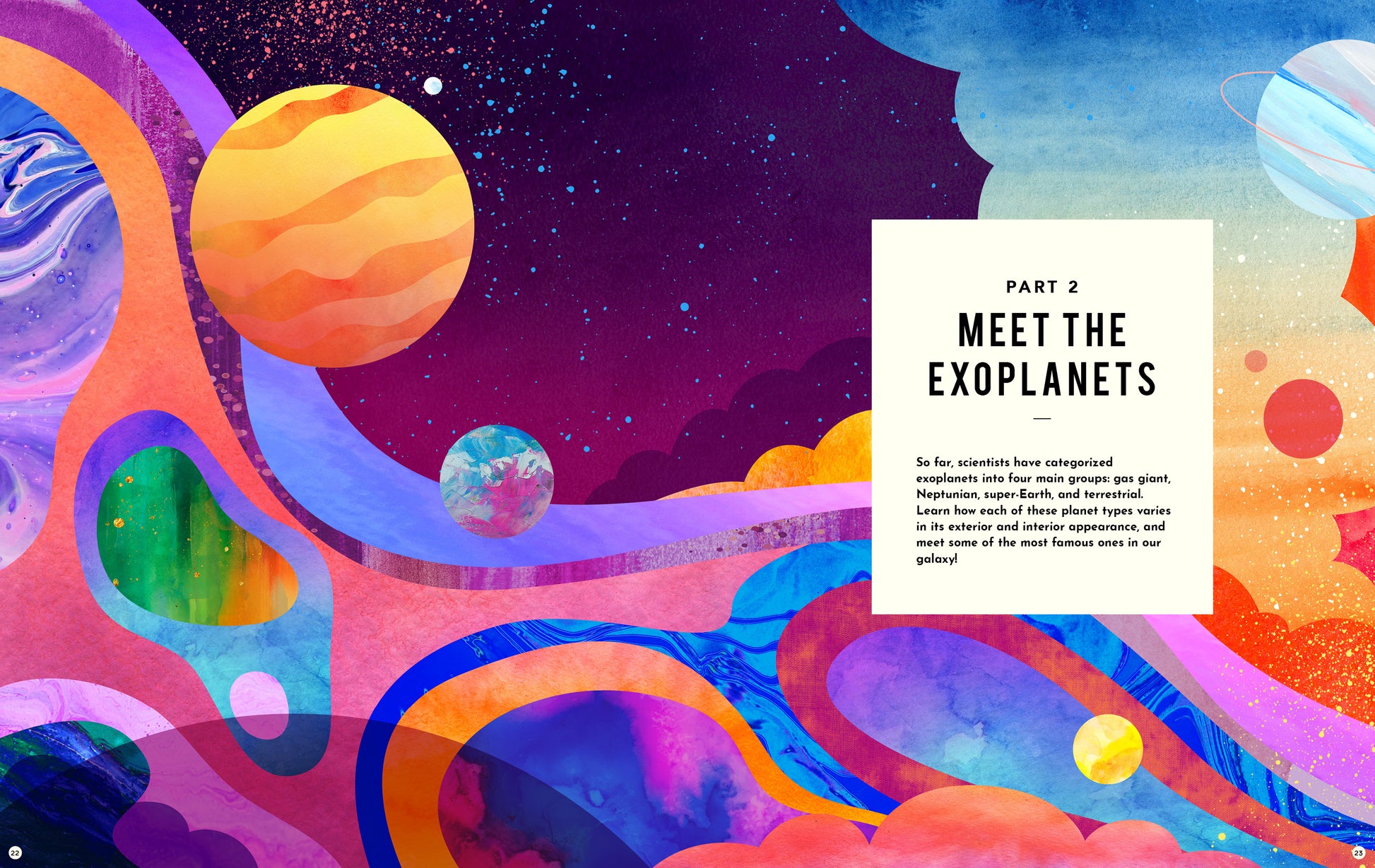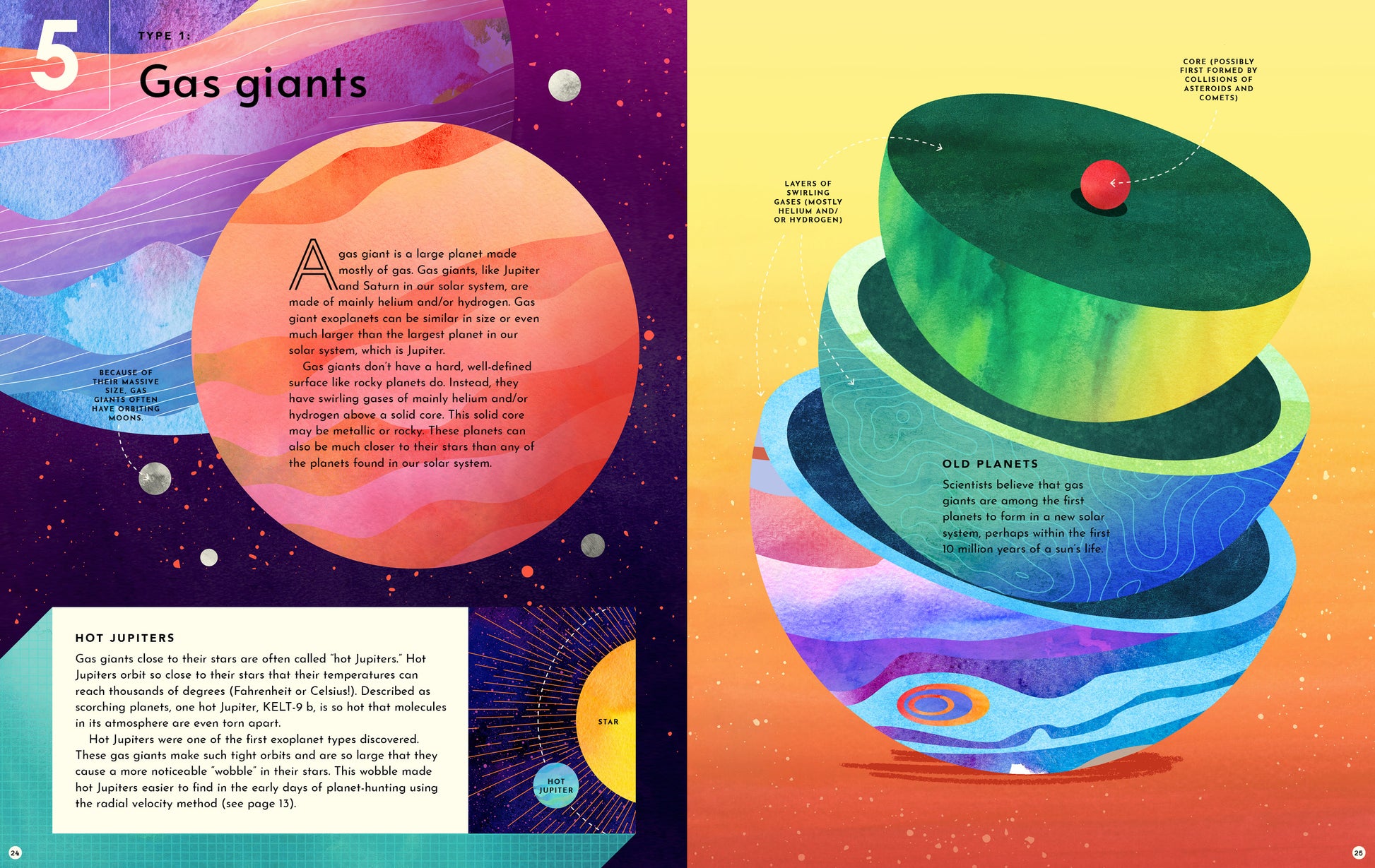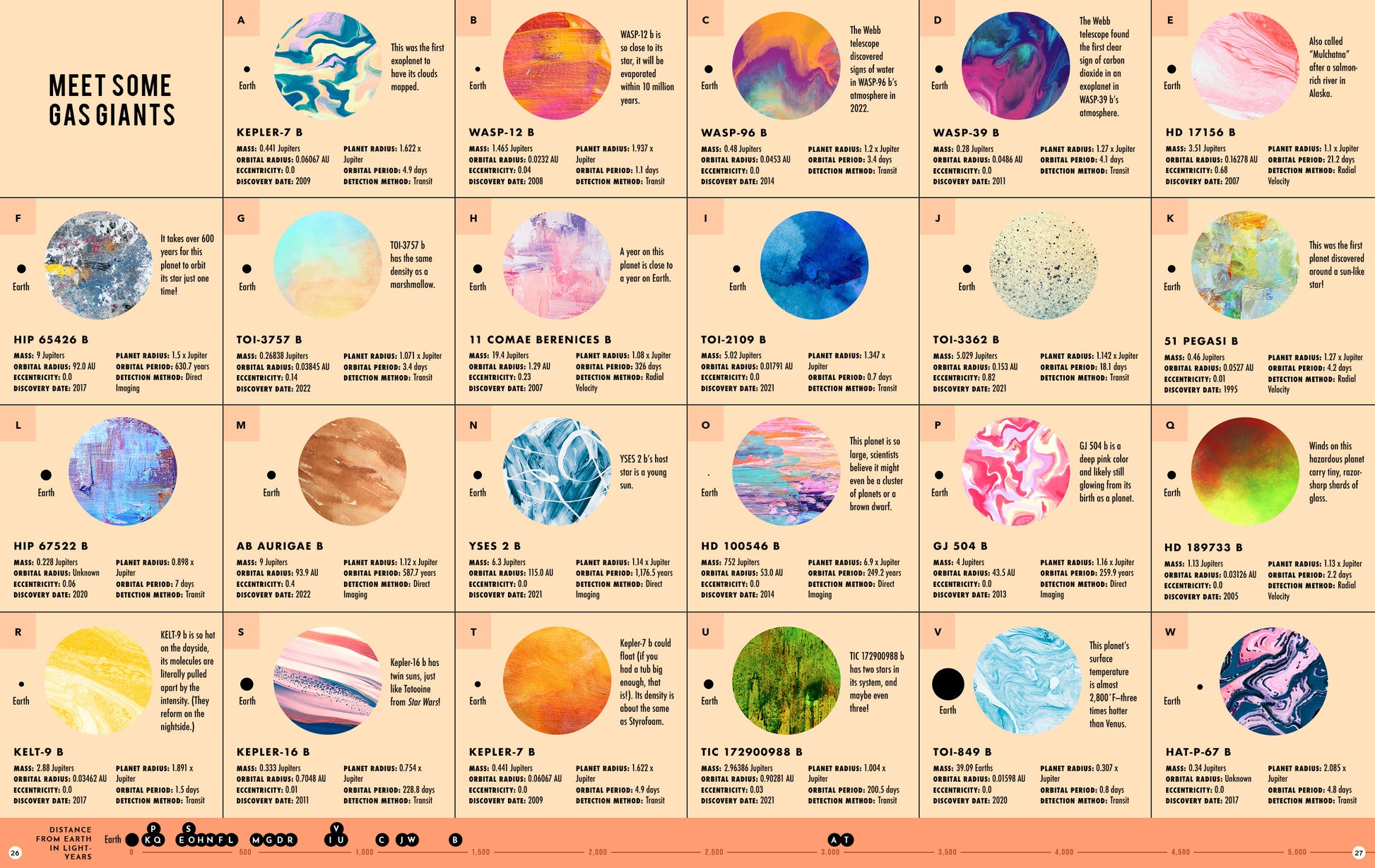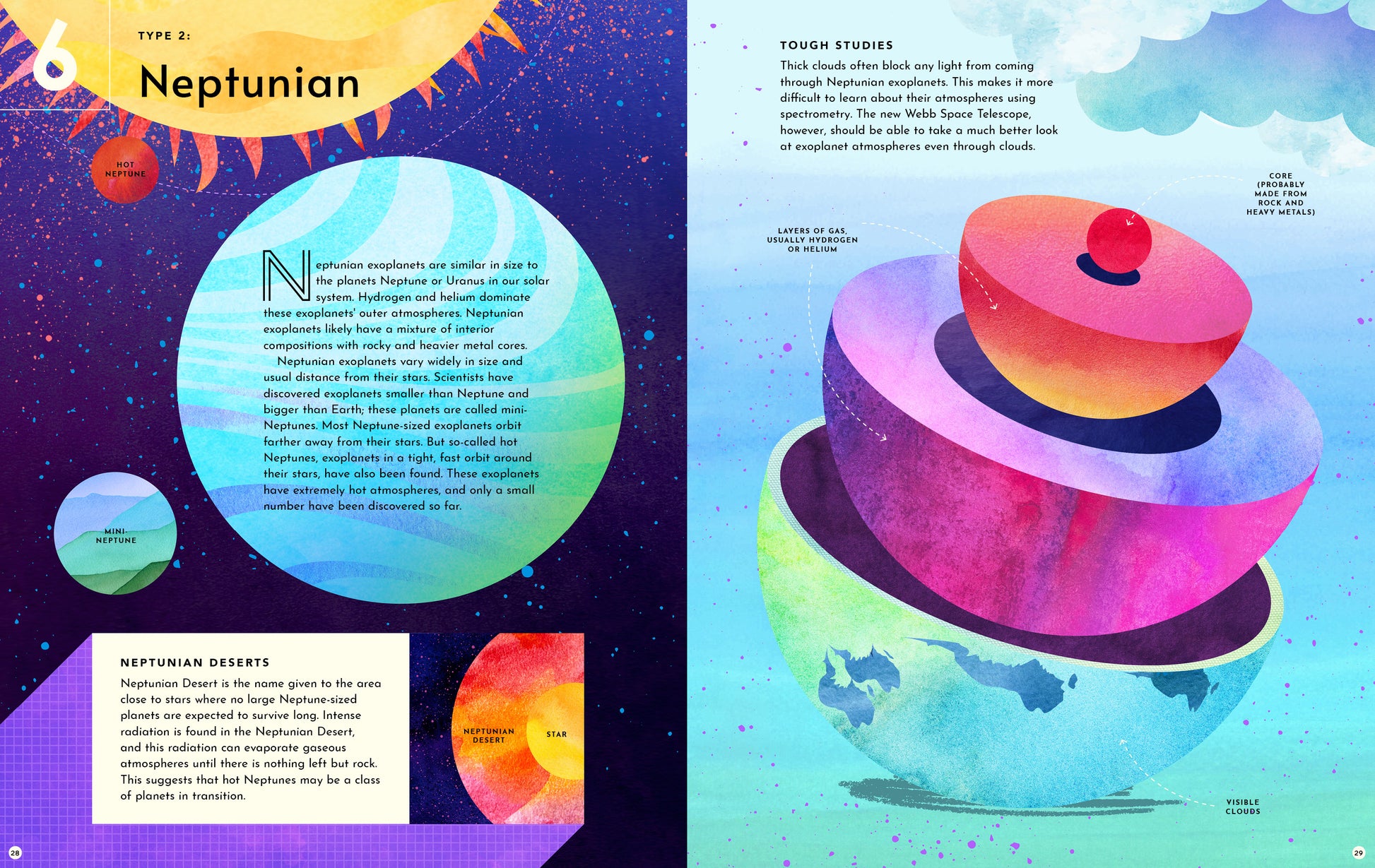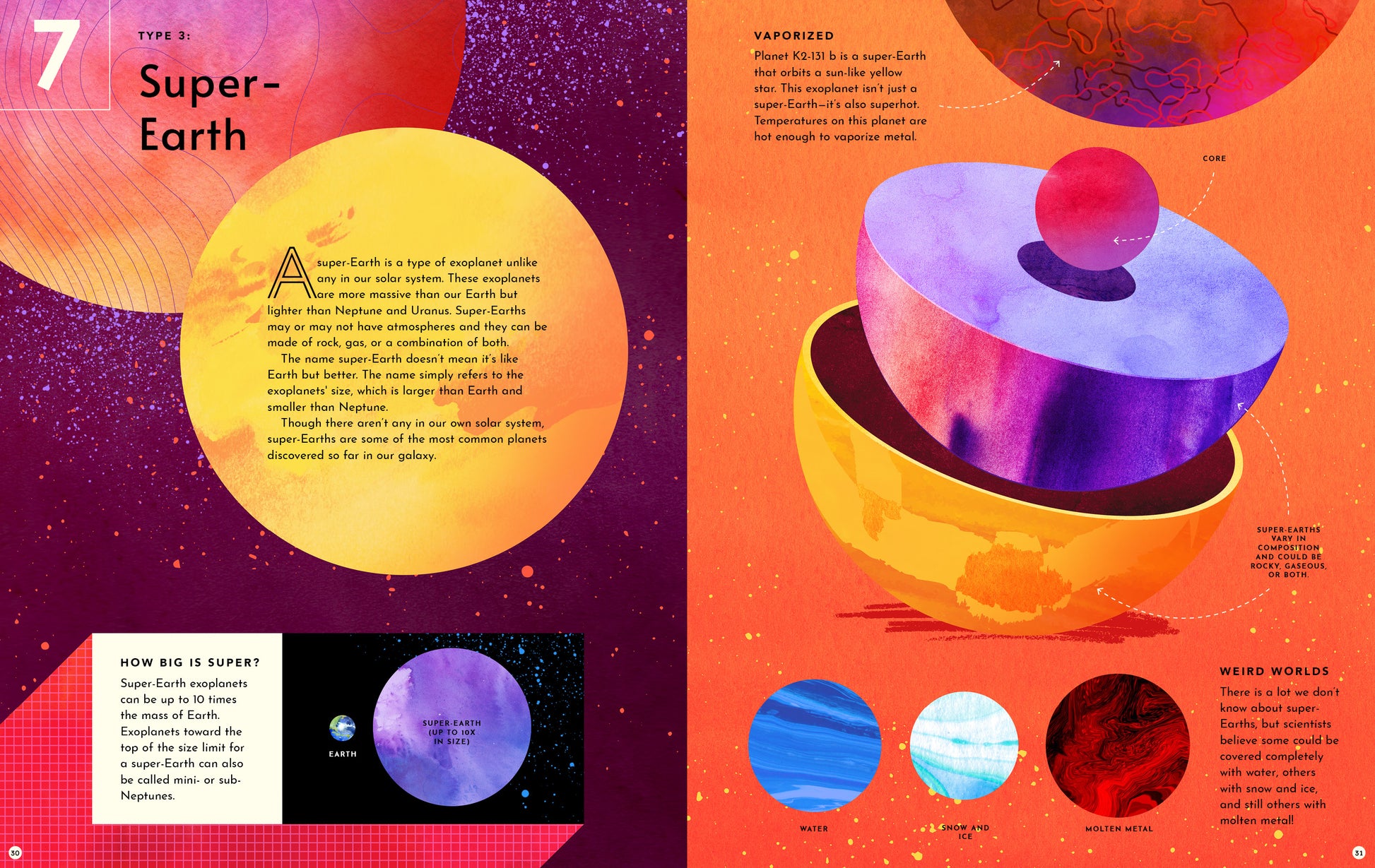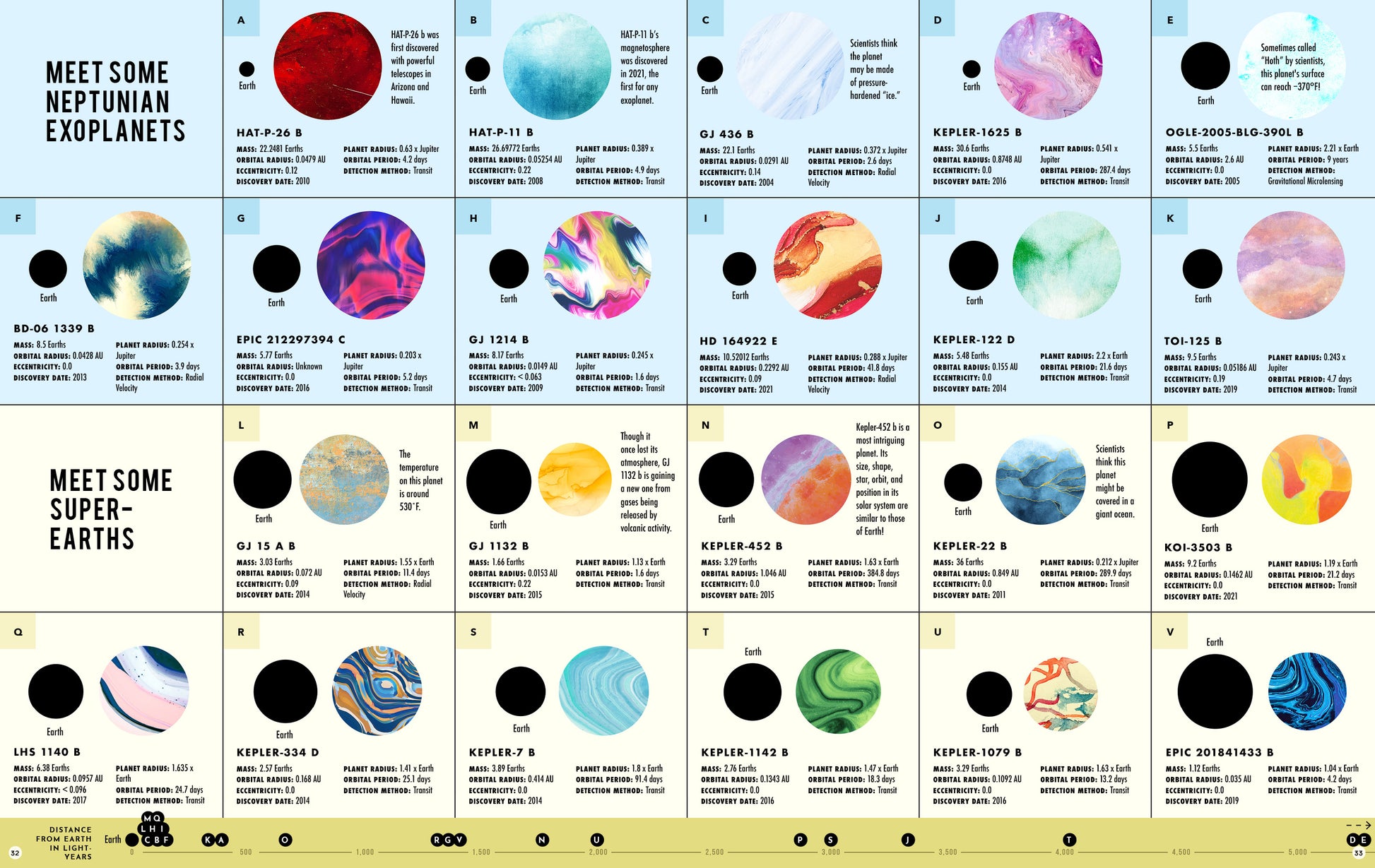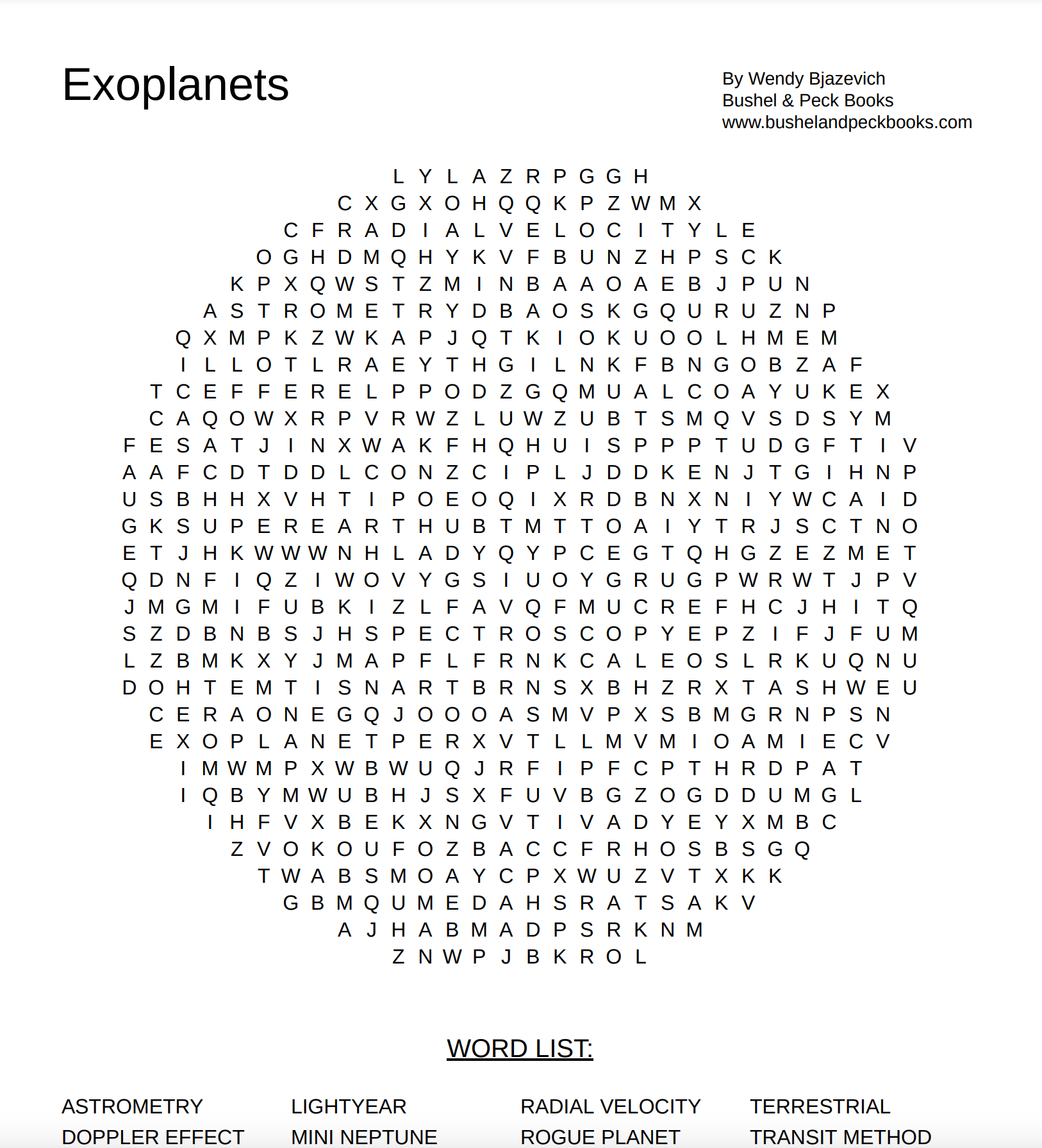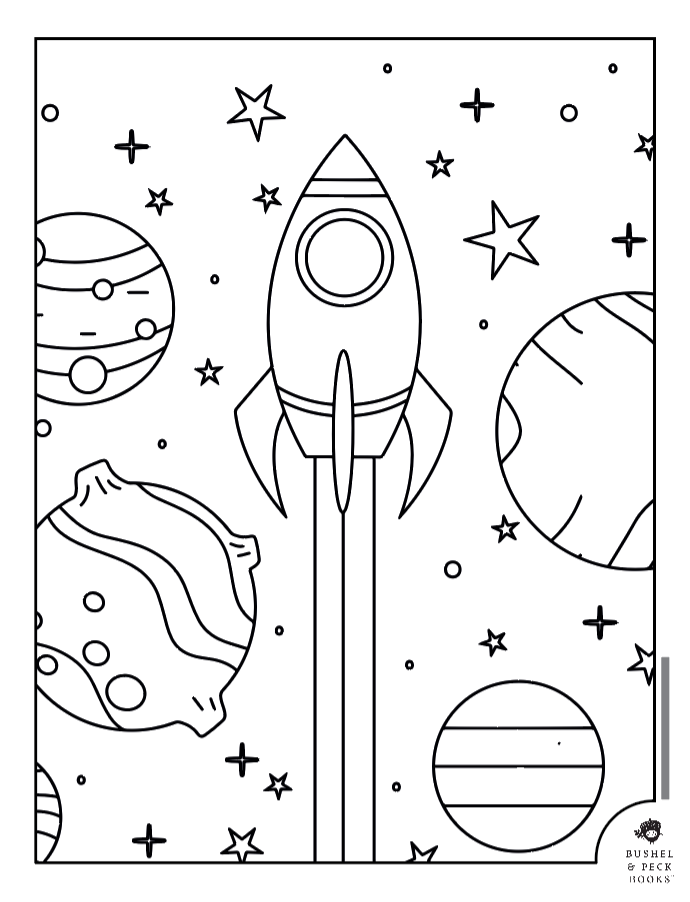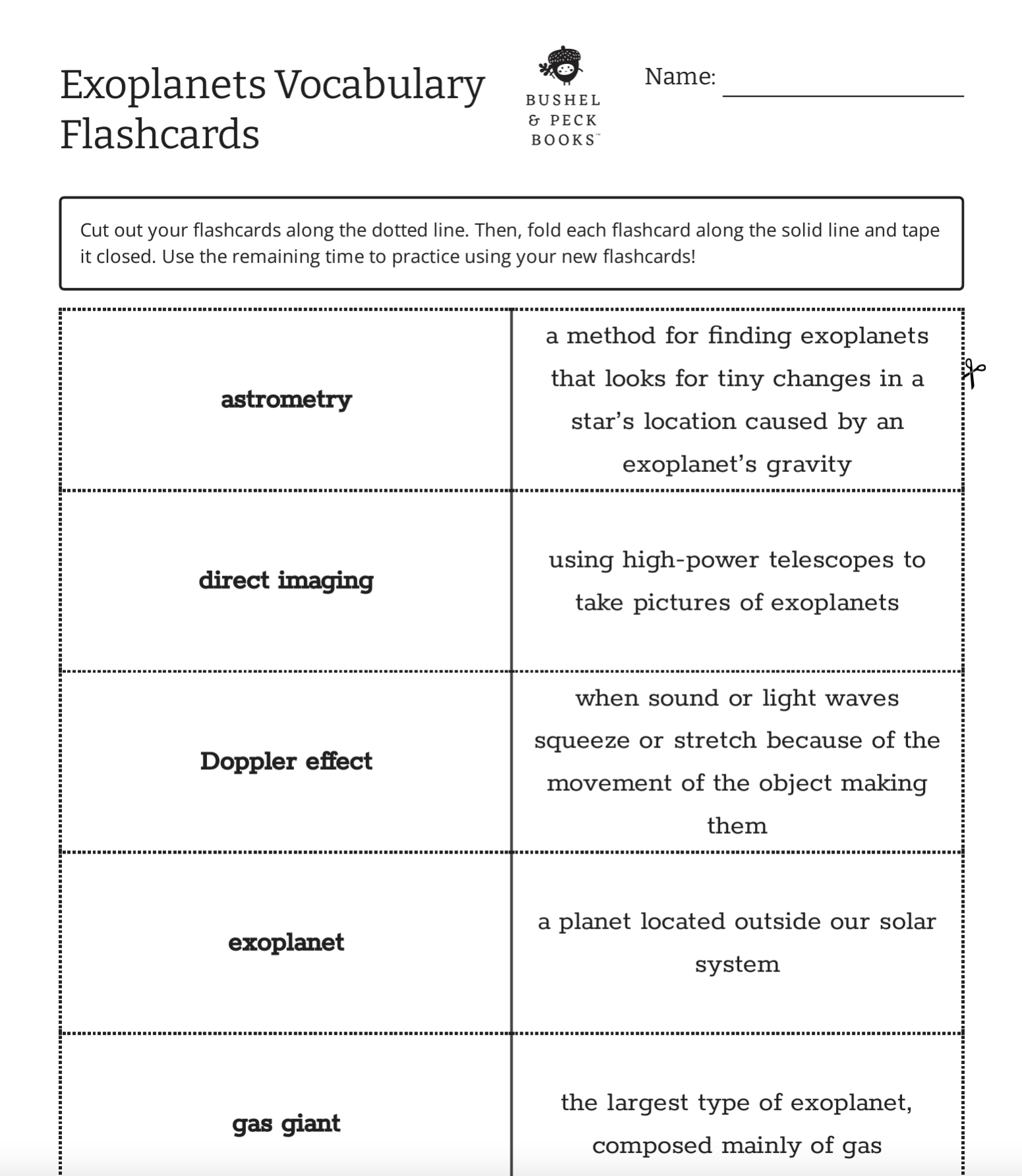Bushel & Peck Books
Exoplanets: A Visual Guide to the Worlds Outside Our Solar System
Exoplanets: A Visual Guide to the Worlds Outside Our Solar System
Couldn't load pickup availability
You know all about the planets near Earth, but what about the planets outside our solar system? How are they discovered? Could there be life? Find out in Exoplanets!
NASA has confirmed the existence of over 5,000 exoplanets (planets that lie outside of our solar system), and that number is growing! Exoplanets, the first book of its kind for kids, is a visually packed guidebook to the exoplanets of our universe. You’ll learn the four main types of exoplanets, techniques scientists use to discover them, the probability of finding life as we know it beyond Earth, plus detailed information about dozens of some of the most fascinating exoplanets discovered so far, from water worlds to planets that are literally evaporating! It’s a thrilling journey, and it all begins in Exoplanets!
Wendy is the author of the Green and Small series and is a science enthusiast. She received a B.S. from Brigham Young University in sociology and health education and a Master of Forensic Sciences from George Washington University. Wendy enjoys spending time with her husband and six children.
David Miles is an award-winning and bestselling author and illustrator of over 40 books, including The Side-by-Side Declaration of Independence, Book, The Interactive Constitution, Allegro, Unicorn and Horse, and other titles. He has worked as a designer, illustrator, and creative director, and he now runs Bushel & Peck Books with his wife, Stephanie. He's been named a CYBILS Award Finalist, Publishers Weekly Star Watch Nominee, Trvst Changemaker, New York Book Show Award Winner, and Bill Fisher Award Finalist, among other accolades. He lives in Fresno, California, with his family.
Share
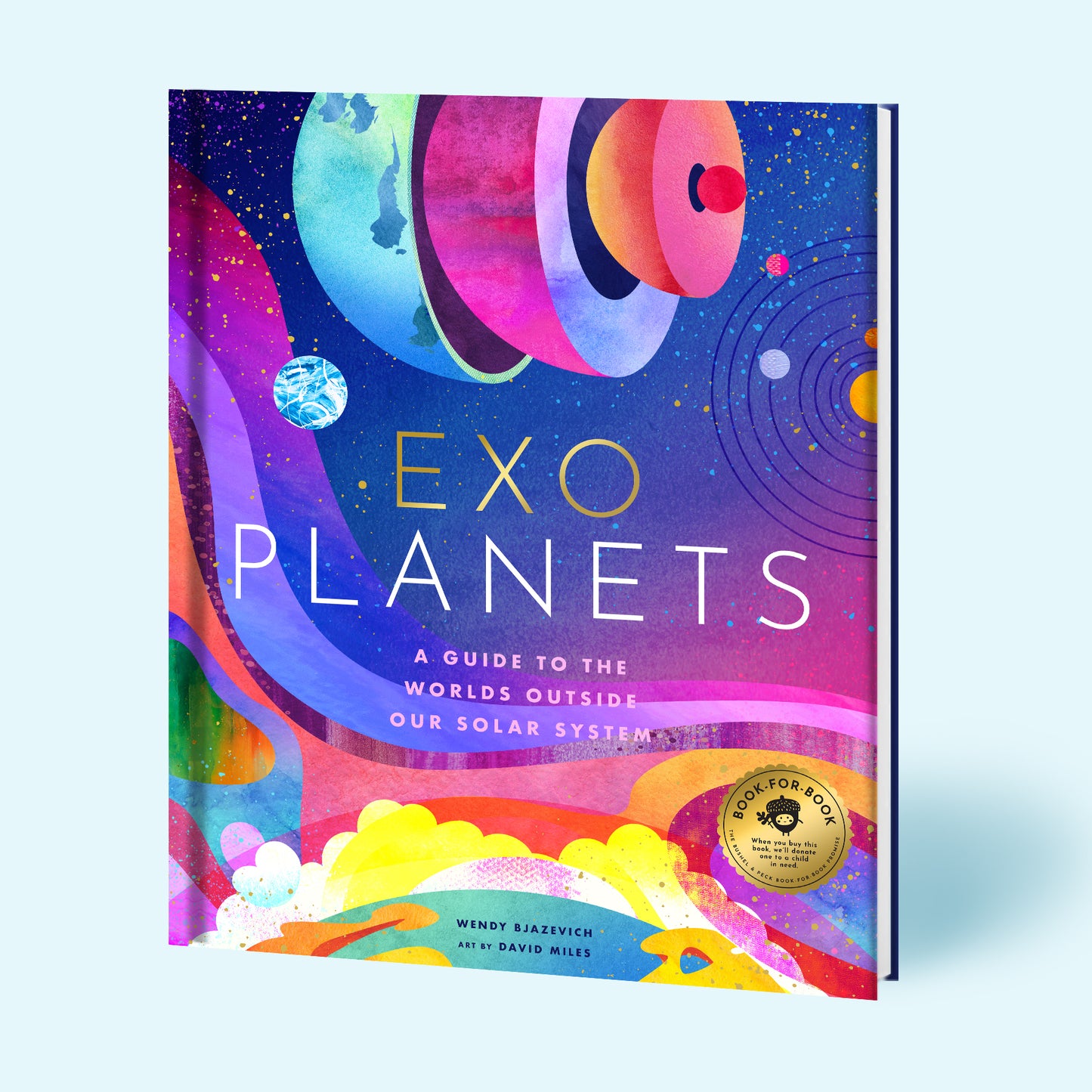
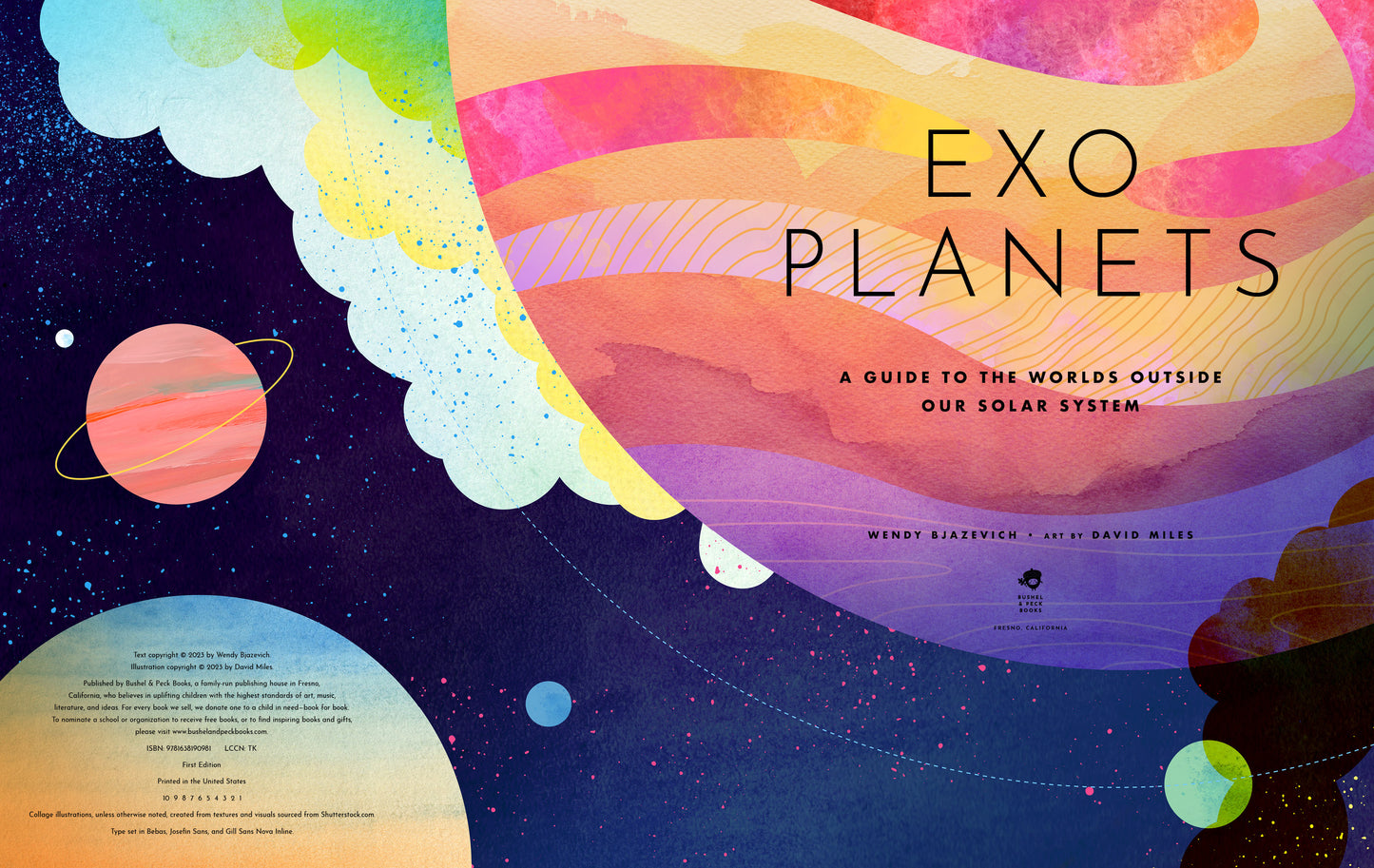
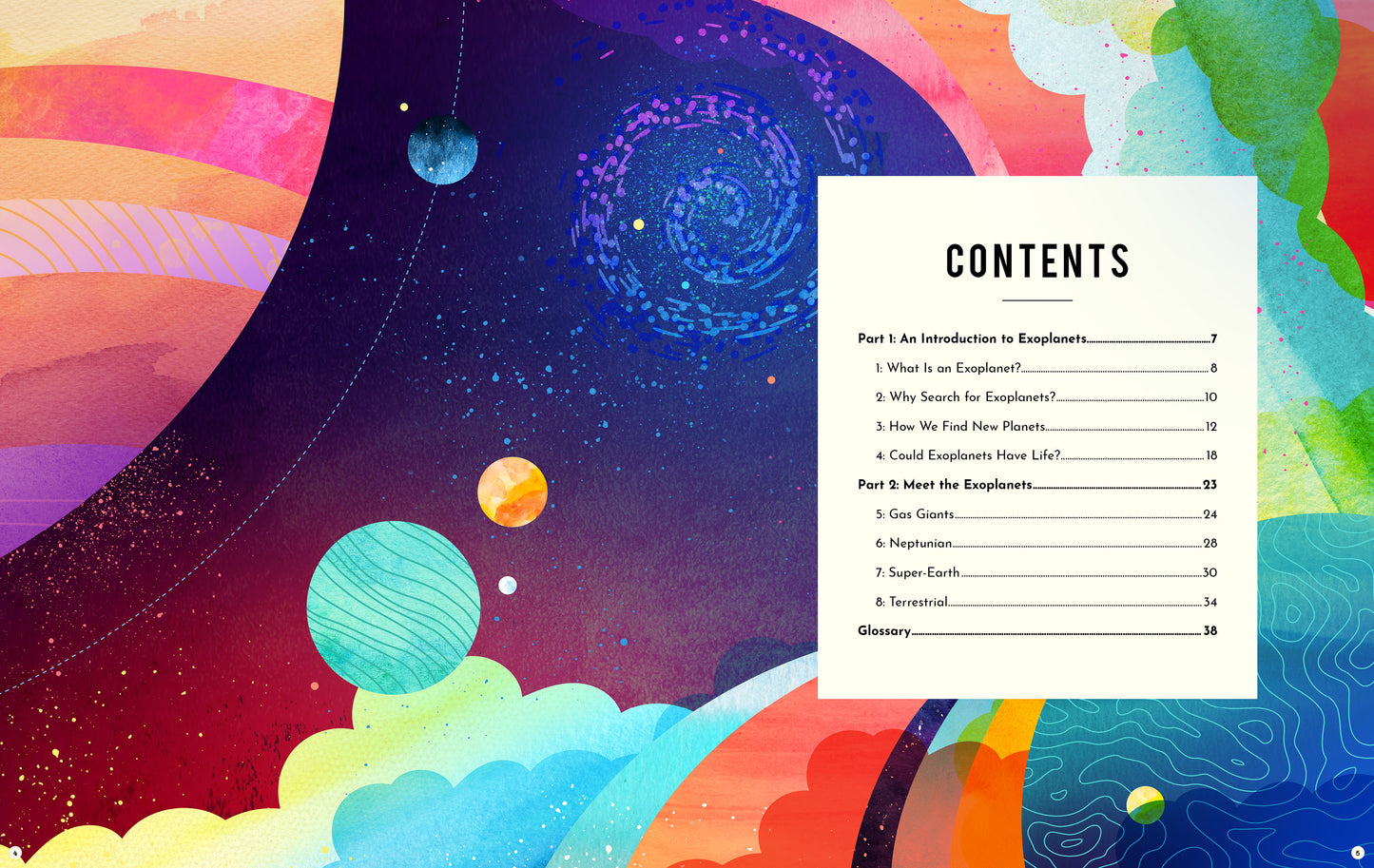
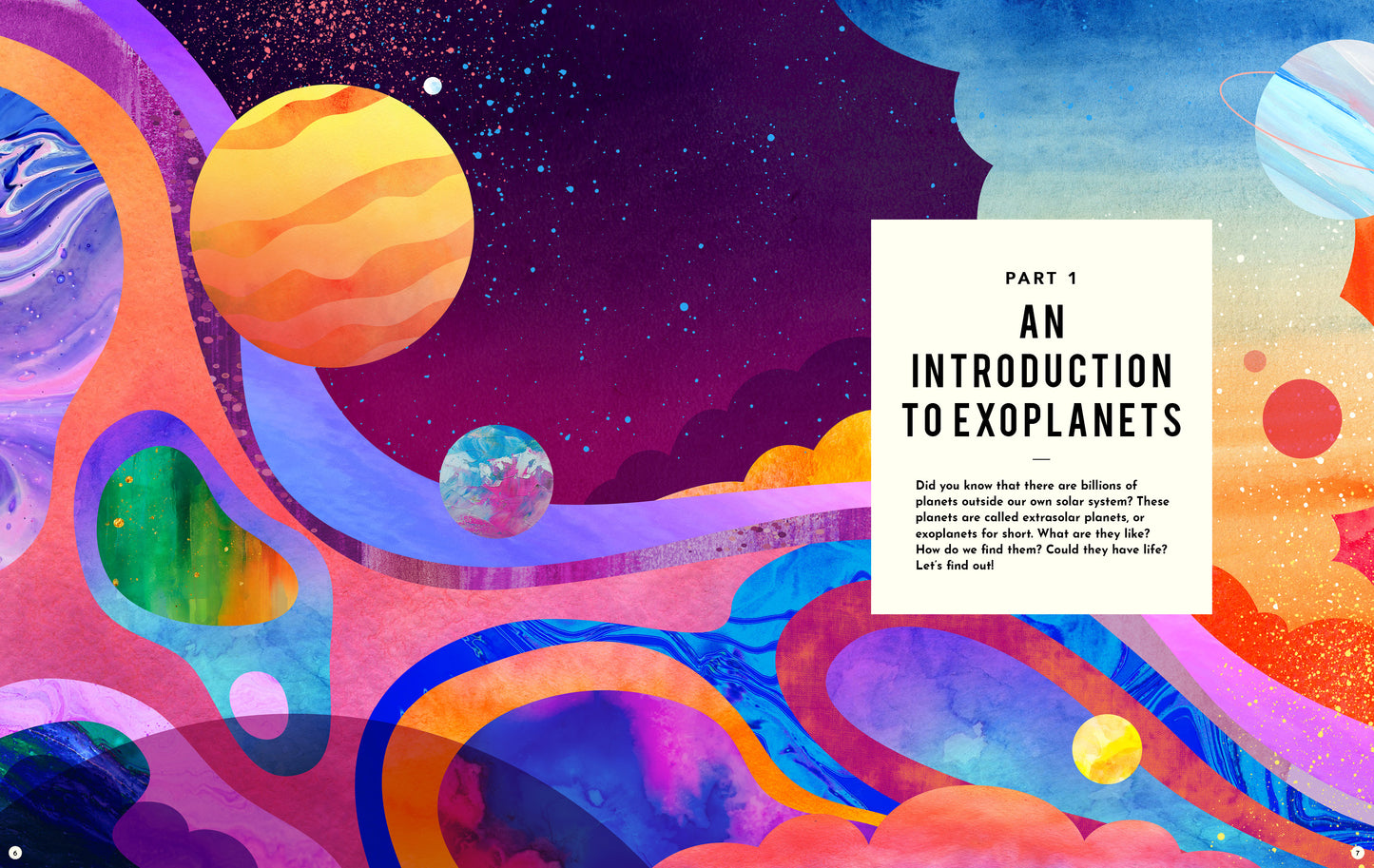
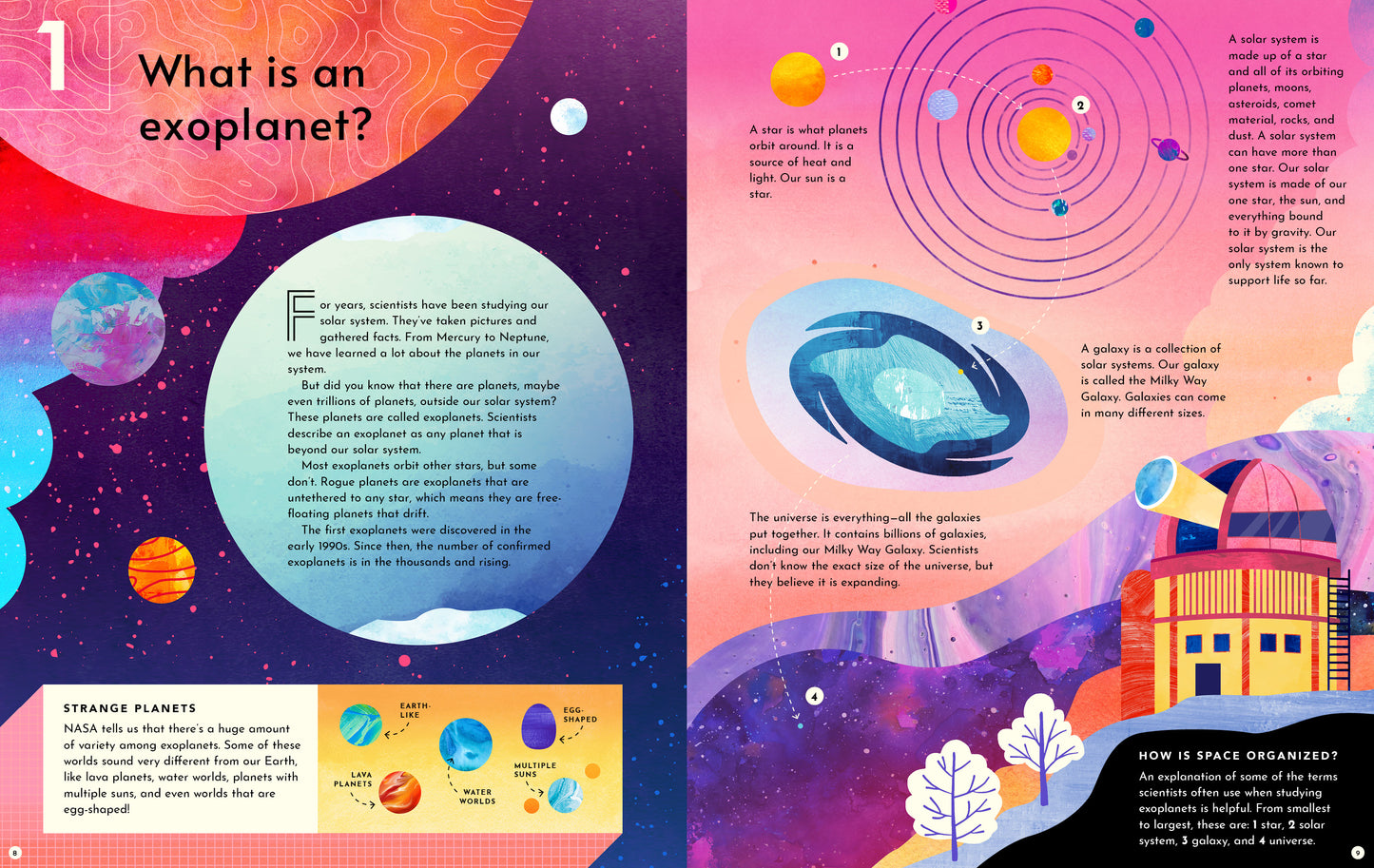
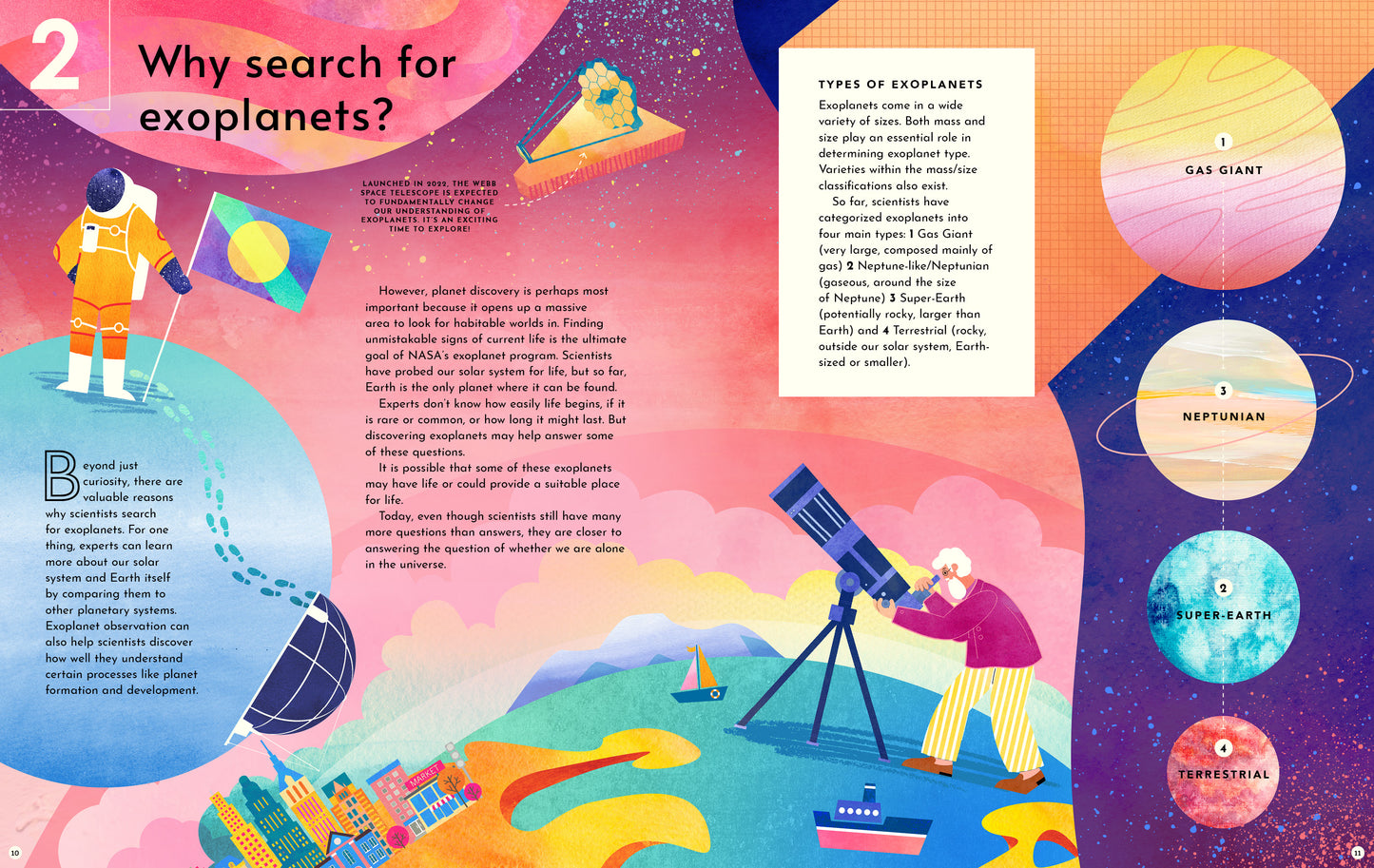
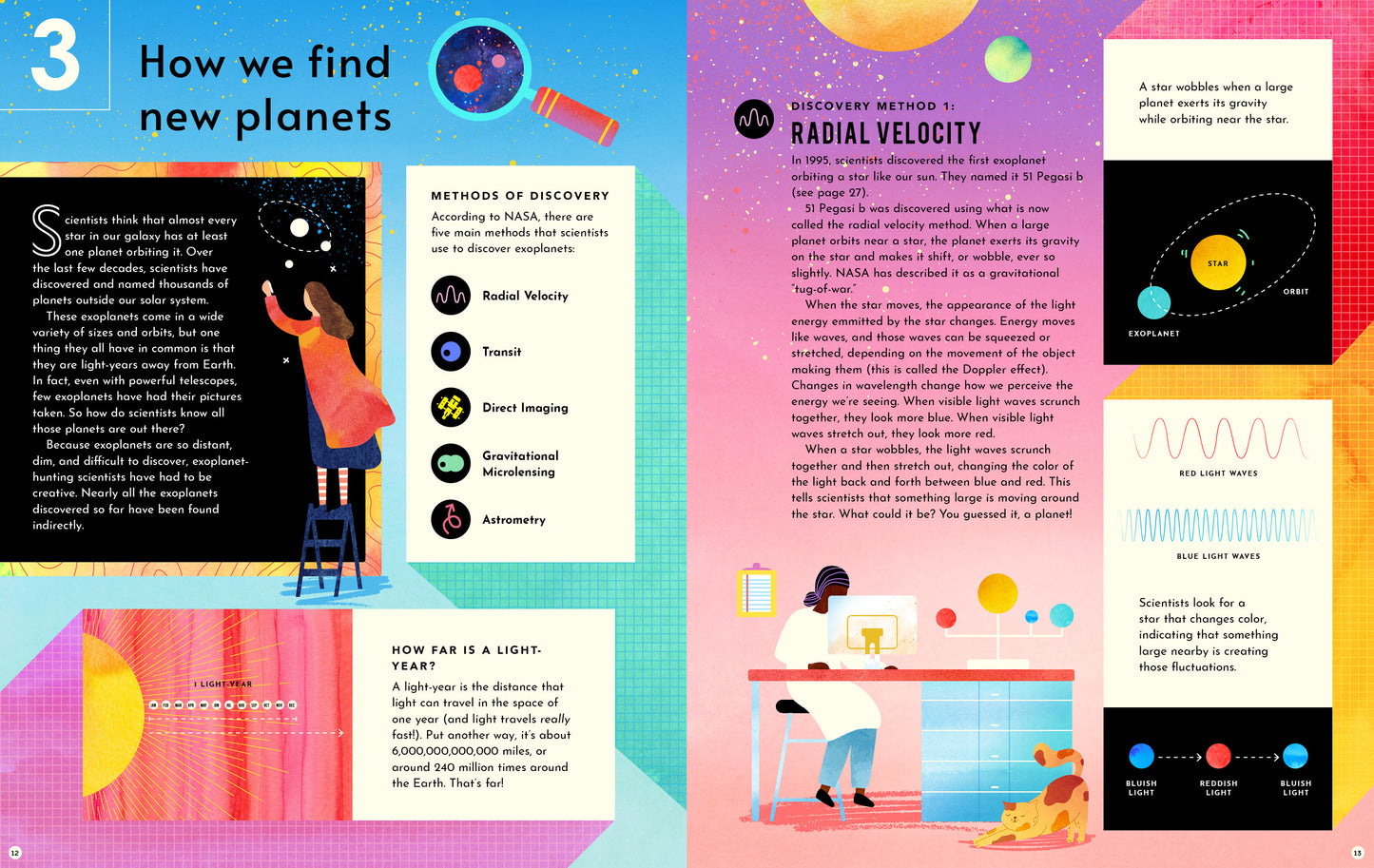
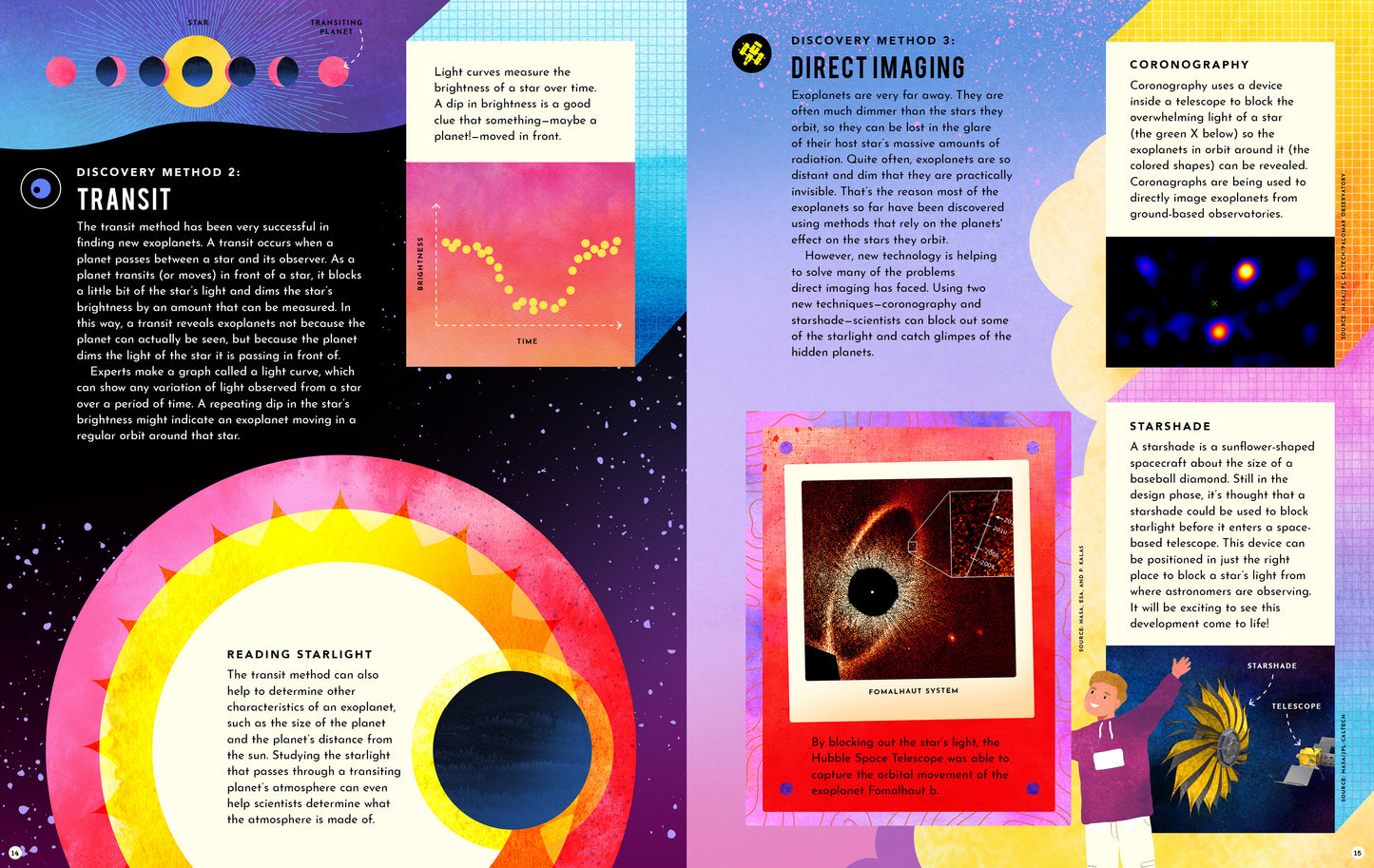
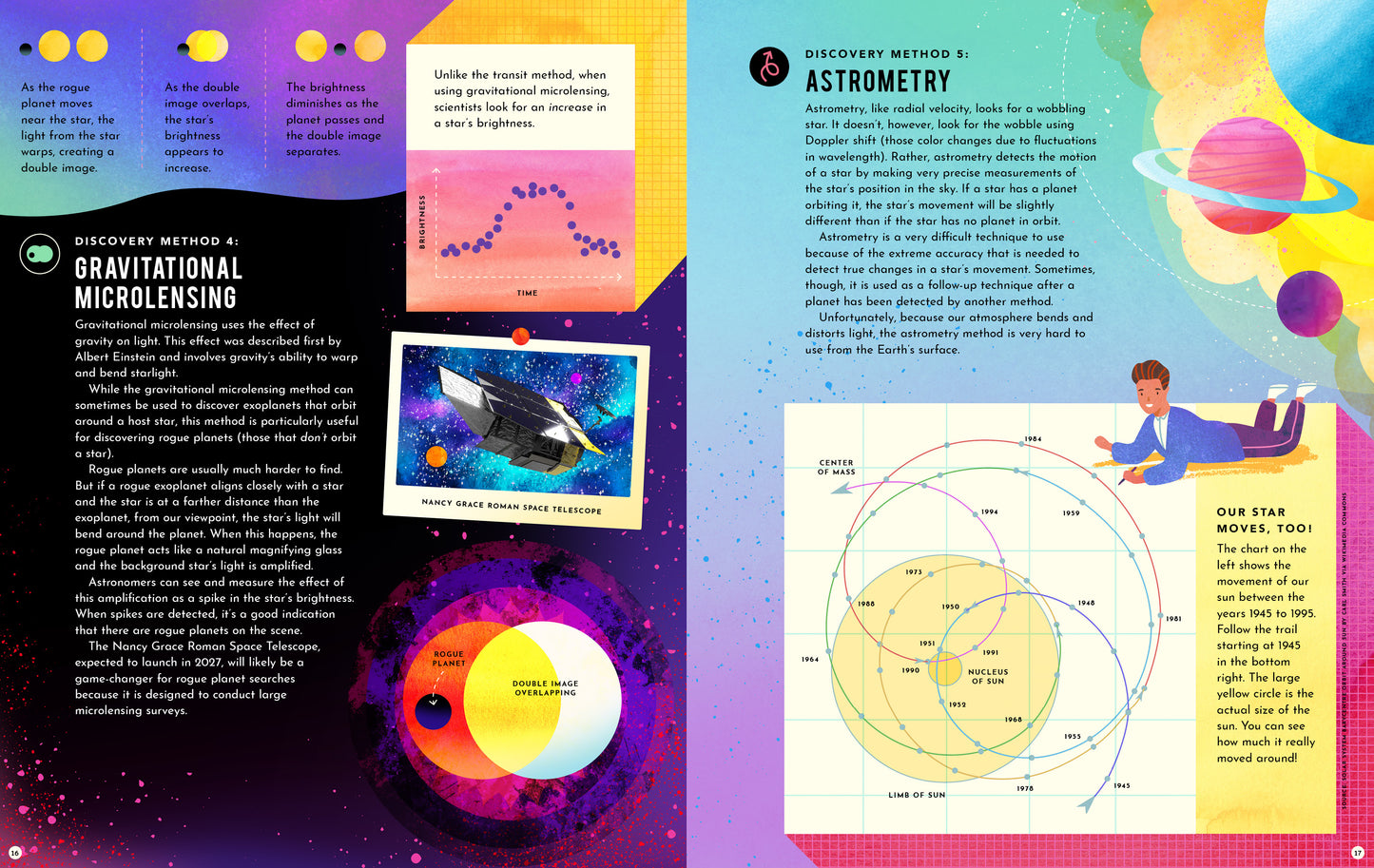
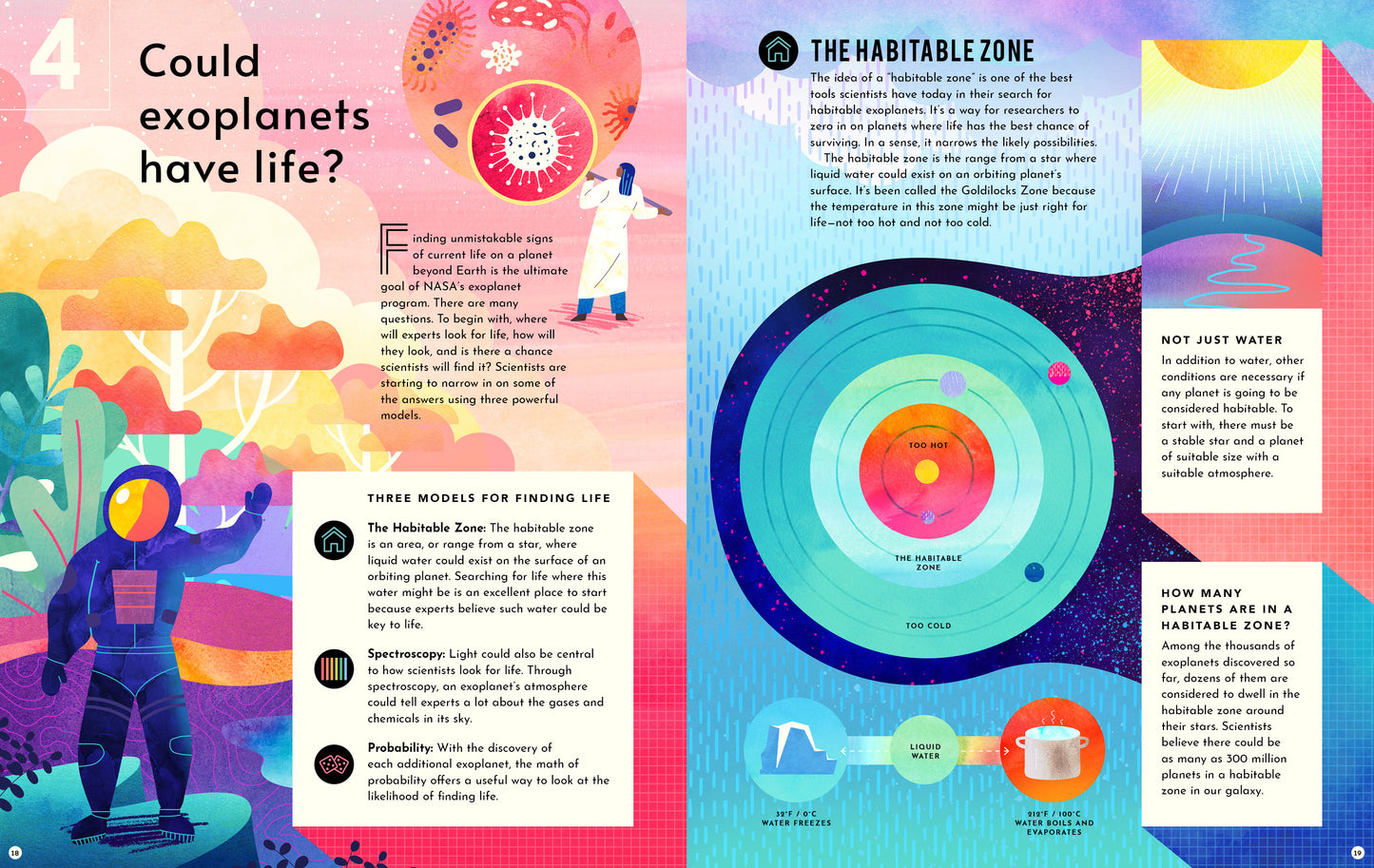
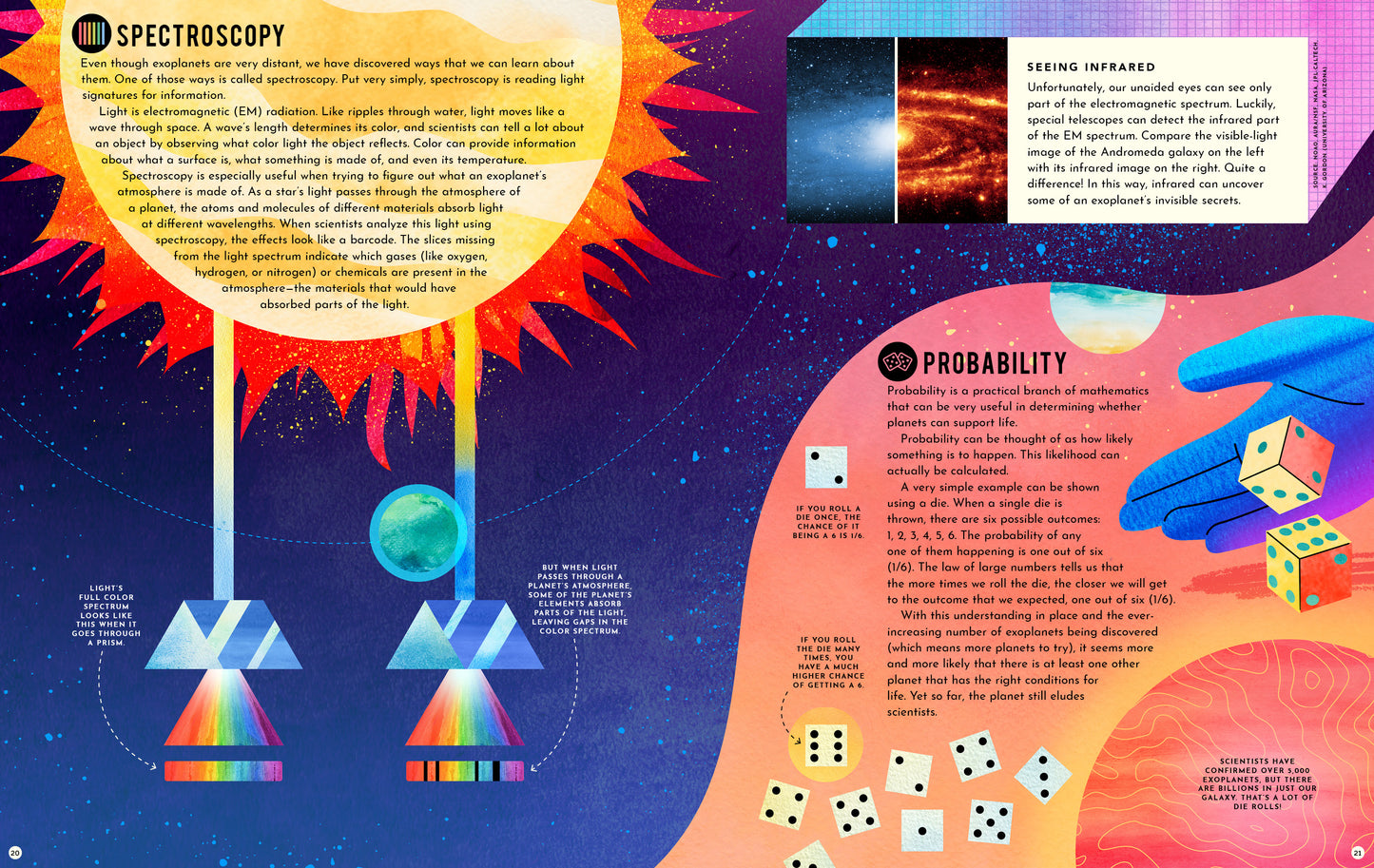
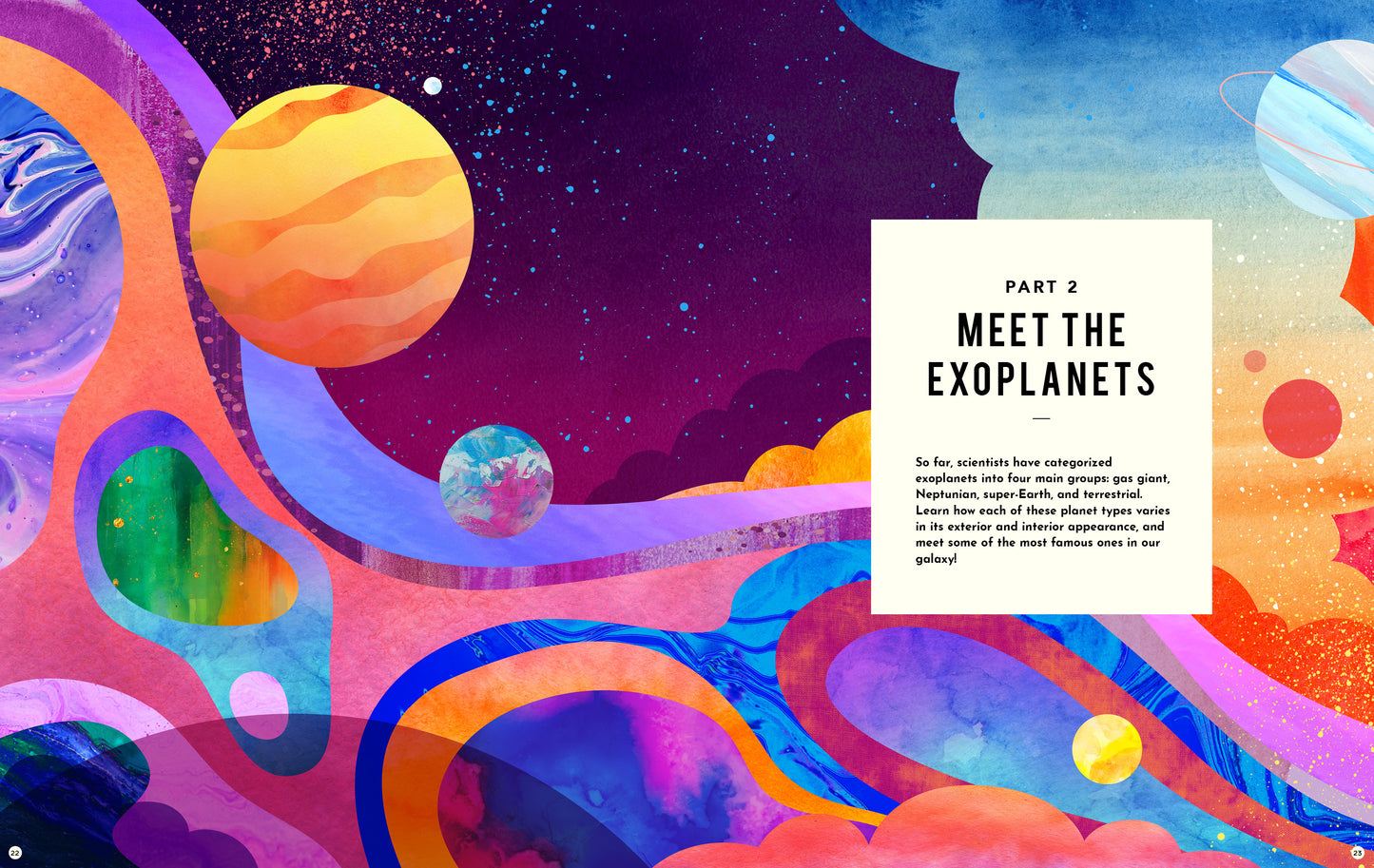
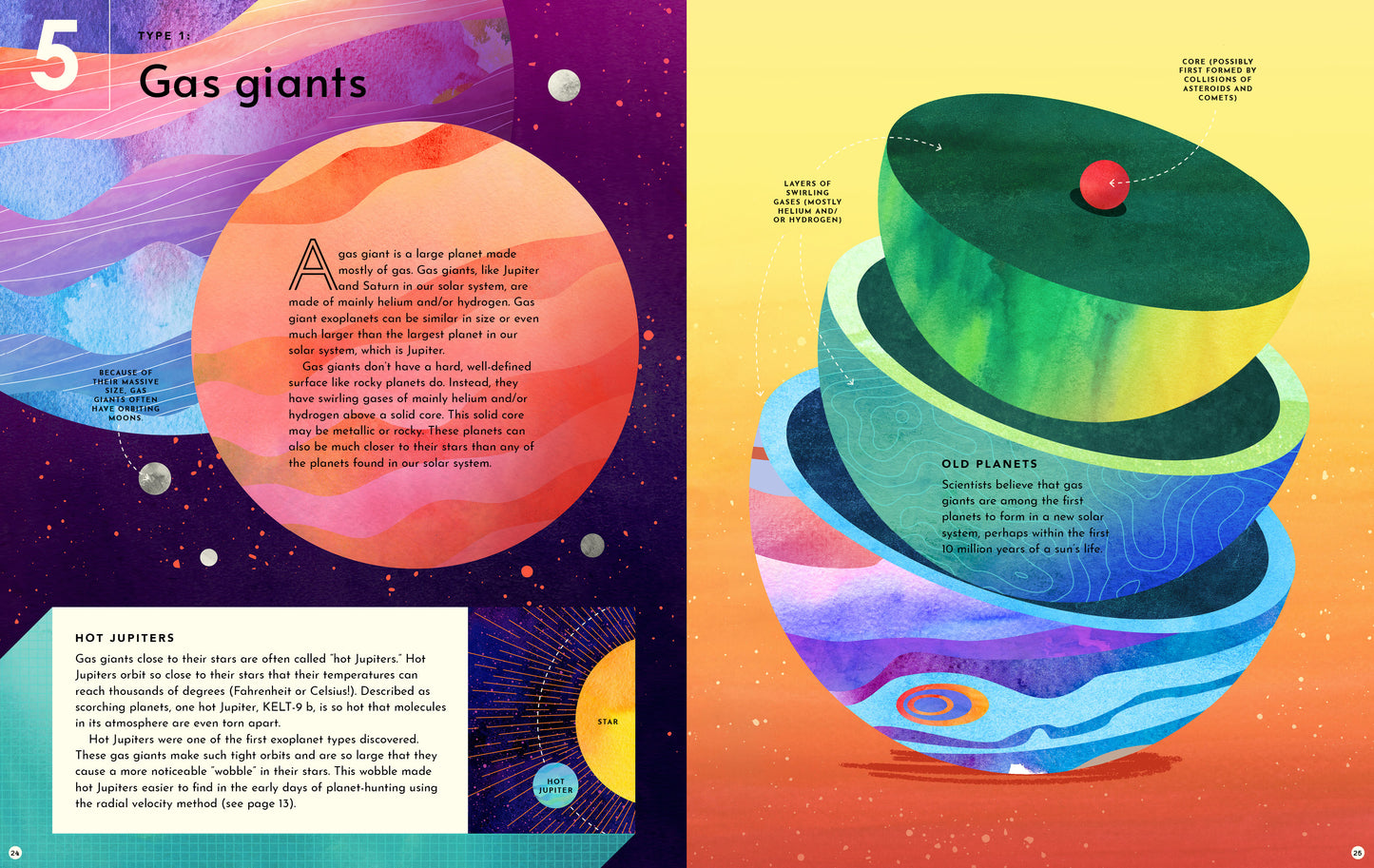
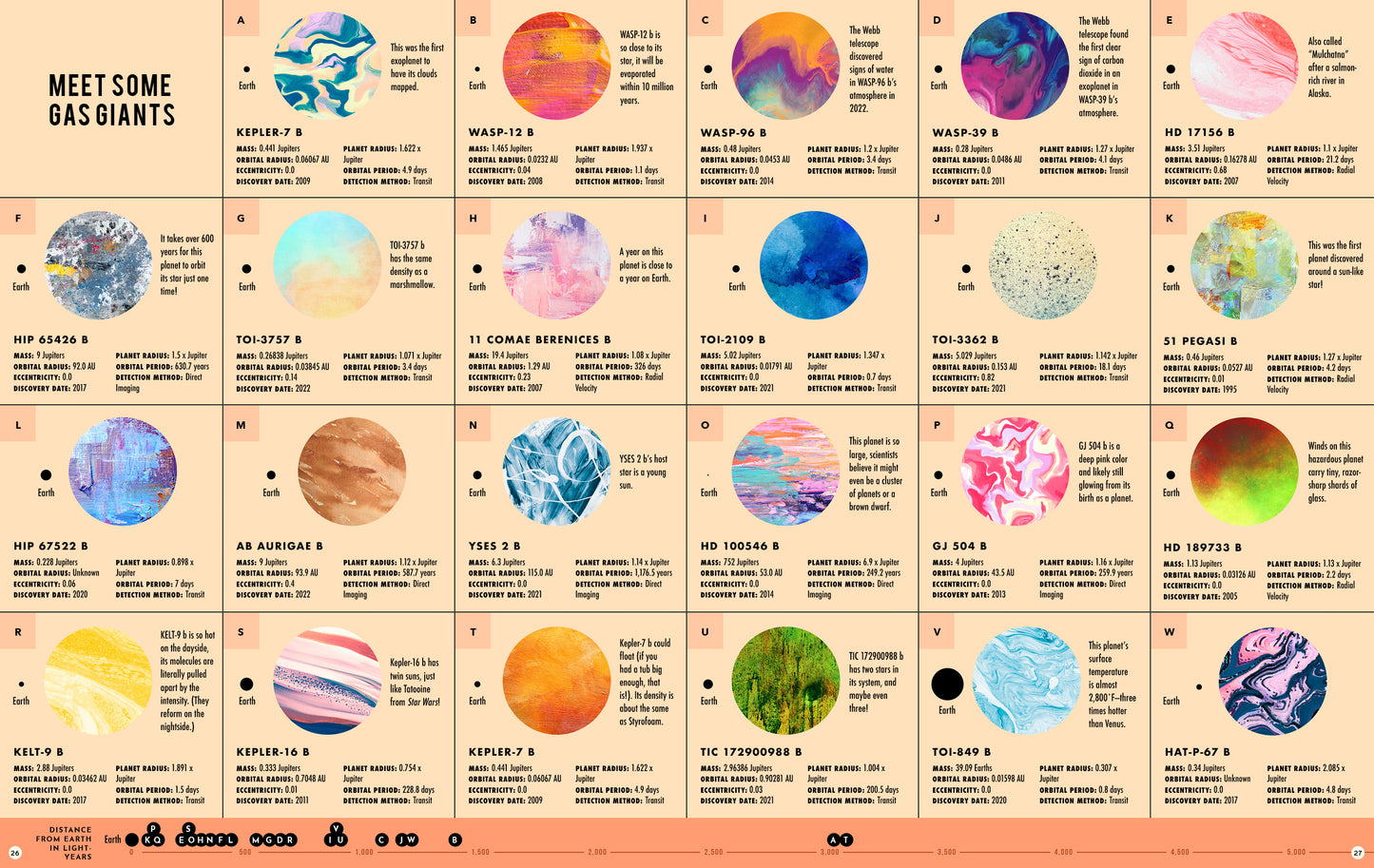
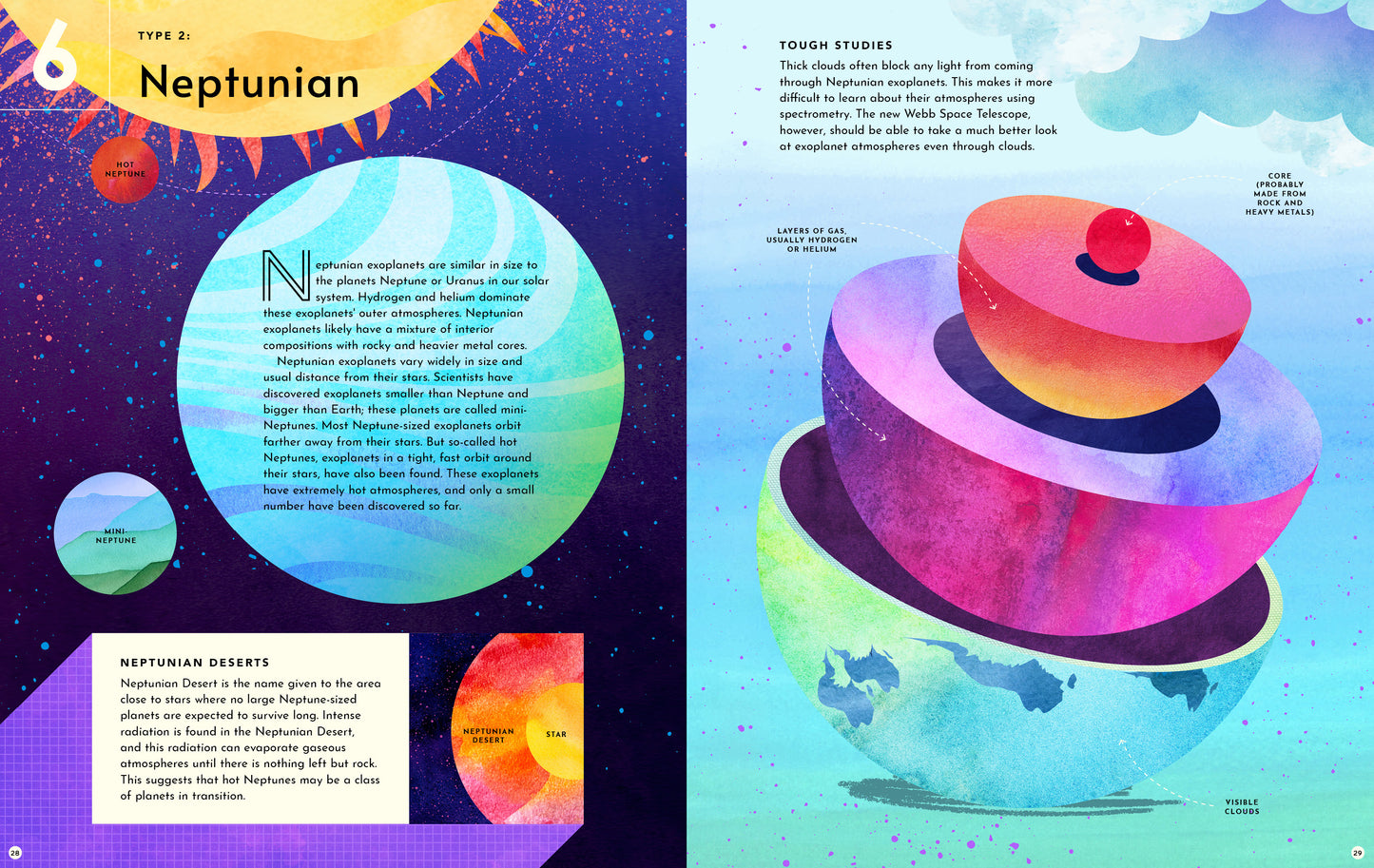
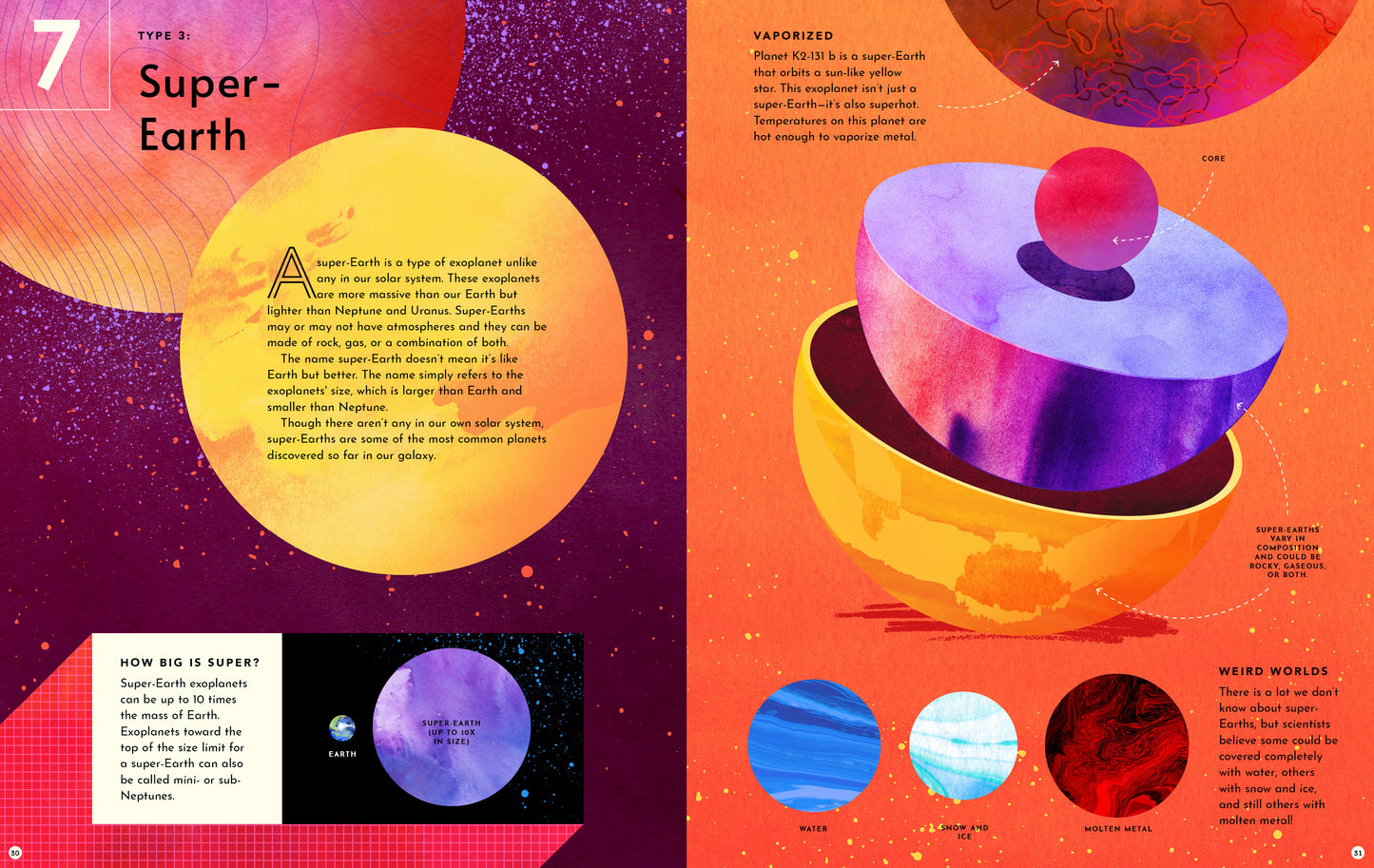
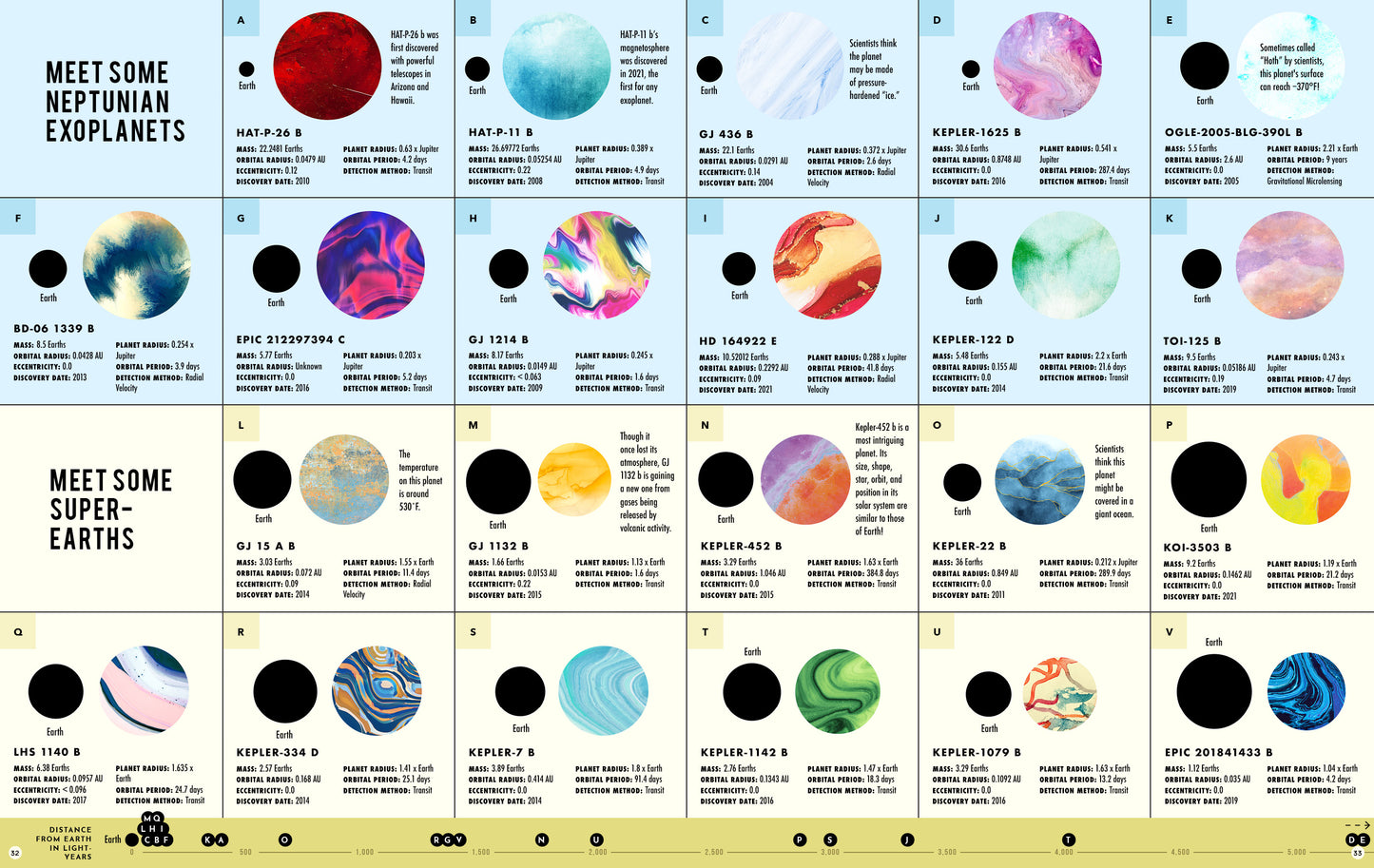
Exoplanets: A Visual Guide to the Worlds Outside Our Solar System
Classroom Resources
Print a Free Worksheet
Or two, or three! Pair these free printables with music, a video, or one of the activities below, and you have an instant afternoon packed with fun and learning!
Make It Fun with Music
Music makes reading fun! Use this custom Exoplanets: A Visual Guide to the Worlds Outside Our Solar System playlist to enhance your experience with the book! Listen while you read or as you do some of the activities and worksheets.
Enrich with a Craft or Activity
Dive into these creative activities to get kids thinking and doing! Hands-on learning isn't just fun—it's an important way to inspire creativity and problem solving.
-
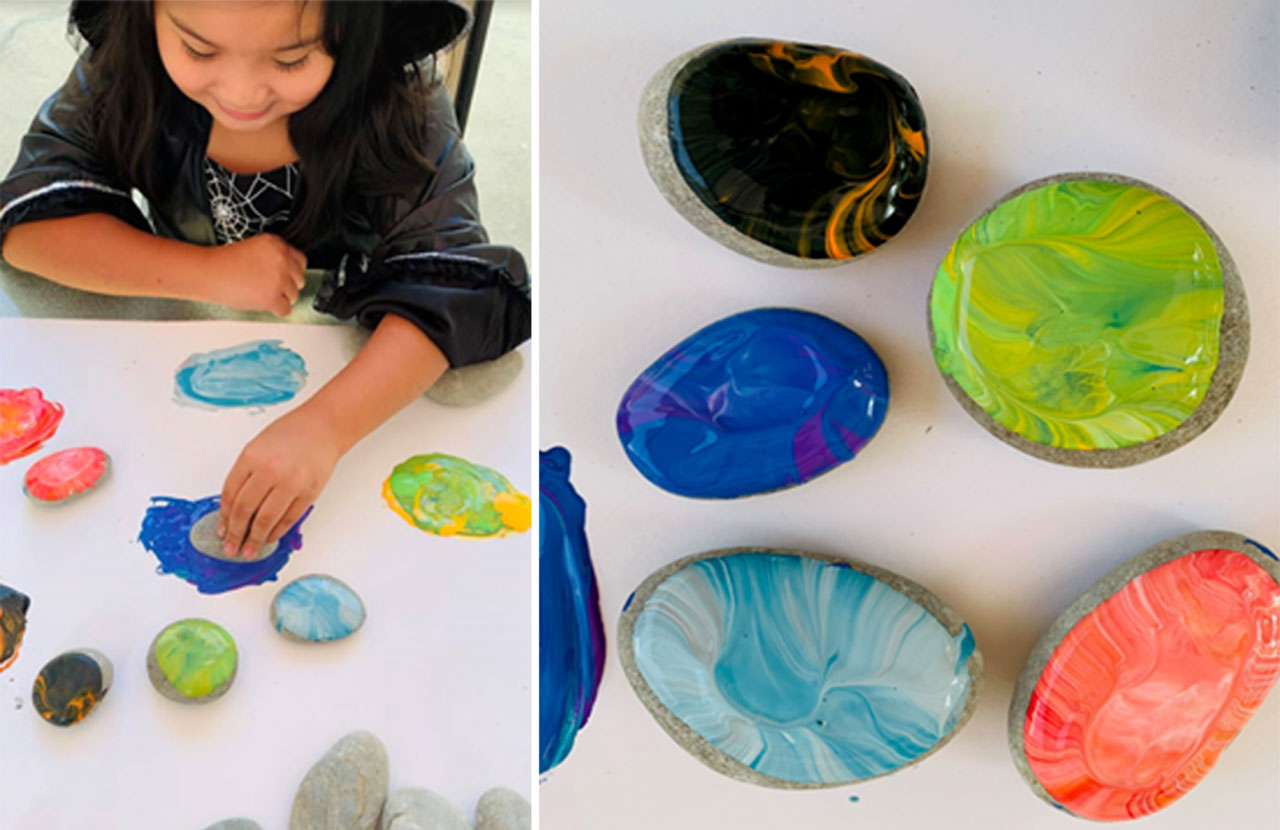
Paint Exoplanet Rocks!
Take me thereA clever painting technique turns ordinary rocks into stunning exoplanets! (Source: NASA)
-
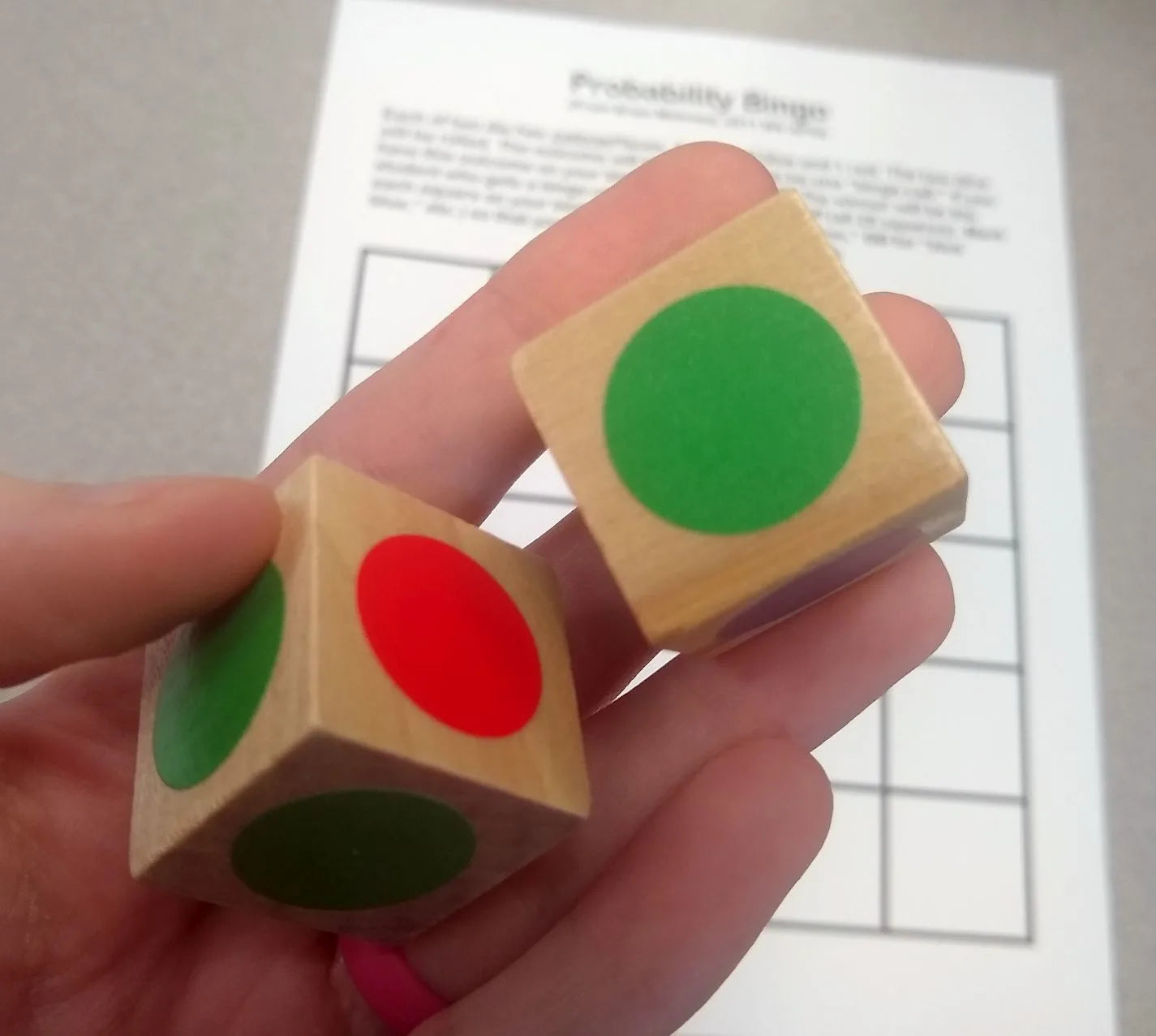
Play Probability Bingo
Take me thereCould there be life on other planets? Scientists use a mathematical concept called "probability" to try to find out. Learn how probability works by playing this fun bingo game! (Source: M+A+T+H=Love)
-

Decorate Galaxy Eggs
Take me thereDesign your own universe with these amazing, glittery eggs! (Source: Dream a Little Bigger)
Go Deeper with Video
Spice up any lesson plan with one of these terrific videos!
Invite Wendy Bjazevich to your school!

Wow your kids and bring Exoplanets: A Visual Guide to the Worlds Outside Our Solar System to life with a school or library visit from Wendy Bjazevich! To check availability, please contact Nicholle at nicholle@bushelandpeckbooks.com.
About Our Visiting Author Program
Bushel & Peck authors love to do school visits! Visits are often free when paired with a local book signing. To learn more and to find authors in your area, please contact Nicholle at nicholle@bushelandpeckbooks.com. Availability varies by author and region.
Write to Wendy Bjazevich
Our authors and illustrators love hearing from their readers! We can't guarantee a response—they're busy people doing incredible things!—but we'll make sure they get your message.
Contact form
Works Consulted
These works were consulted during the writing and editing of this book. You can use them to explore the topic further or inspire a creative research project!
- Anne Marie Helmenstine, Ph.D. “Spectroscopy Definition.” ThoughtCo, September 13, 2019. https://www.thoughtco.com/definition-of-spectroscopy-605676.
- Bock, Michael. “Curious Universe: Let's Go Planet-Hunting!” NASA. NASA, July 12, 2021. https://www.nasa.gov/mediacast/let-s-go-planet-hunting.
- Cimone, Matthew. “The Color of Habitable Worlds.” Universe Today, October 30, 2020. https://www.universetoday.com/148532/the-color-of-habitable-worlds/.
- “The Different Kinds of Exoplanets You Meet in the Milky Way.” The Planetary Society, n.d. https://www.planetary.org/articles/the-different-kinds-of-exoplanets-you-meet-in-the-milky-way.
- E, Phillip. “What Is the Order from Largest to Smallest: Galaxy, Universe, Star, Asteroids, Planets, Moons, Solar System?: Socratic.” Socratic.org, May 19, 2017. https://socratic.org/questions/what-is-the-order-from-largest-to-smallest-galaxy-universe-star-asteroids-planet.
- “Exoplanet Exploration: Planets beyond Our Solar System.” NASA, December 17, 2015. https://exoplanets.nasa.gov/.
- “Exoplanet Facts for Kids - Interesting Facts about Exoplanets.” Planets for Kids, June 17, 2019. https://www.planetsforkids.org/the-universe/exoplanets.html.
- “Exoplanets Planets Facts for Kids: Summary, Structure & Formation.” The Nine Planets, November 19, 2020. https://nineplanets.org/kids/exoplanets-planets/.
- “Exoplanets.” ESA, n.d. https://www.esa.int/kids/en/learn/Life_in_Space/Are_we_alone/Exoplanets.
- “'Forbidden Planet' Discovery Amazes Scientists.” KidsNews, May 30, 2019. https://www.kidsnews.com.au/space/newly-found-extreme-world-nicknamed-the-forbidden-planet-would-melt-a-human-in-under-a-second/news-story/9bd5a46aec9ff8cbf242c4a0adc02928.
- “Gas Giant.” Gas giant - Academic Kids, n.d. https://academickids.com/encyclopedia/index.php/Gas_giant.
- “Nancy Grace Roman Space Telescope.” NASA, n.d. https://roman.gsfc.nasa.gov/exoplanets_direct_imaging.html.
- “Navigation.” ESA Science & Technology - Exoplanet detection methods, n.d. https://sci.esa.int/web/exoplanets/-/60655-detection-methods.
- “Planets.” NASA, July 14, 2021. https://solarsystem.nasa.gov/planets/overview/.
- “Probability.” Wikipedia. Wikimedia Foundation, November 23, 2022. https://en.wikipedia.org/wiki/Probability.
- “Probably Probability.” Mensa for Kids, n.d. https://www.mensaforkids.org/teach/lesson-plans/probably-probability/.
- “Solar System, Galaxy, Universe: What's the Difference?” NASA, n.d. https://nightsky.jpl.nasa.gov/news-display.cfm?News_ID=573.
- Starr, Michelle. “In a First, Astronomers Find an Exoplanet by Using Radio Waves and a Wobbly Star.” ScienceAlert, August 5, 2020. https://www.sciencealert.com/for-the-first-time-a-radio-telescope-has-been-used-to-find-a-planet-by-its-wiggling-star.
- “Terrestrial Planet Facts for Kids - the Inner Planets.” Planets for Kids, July 10, 2019. https://www.planetsforkids.org/planet/terrestrial-planets.html.
- Wall, Mike. “Astronomers Find Record-Breaking Haul of Starless 'Rogue' Planets.” Space.com. Space, December 22, 2021. https://www.space.com/rogue-exoplanets-record-breaking-haul.
- “What Is a ‘Super Earth’ and Why Do We Care?” Discovery, n.d. https://www.discovery.com/space/what-is-a--super-earth---and-why-do-we-care-.
- “What Is an Exoplanet?” Wonderopolis, n.d. https://wonderopolis.org/wonder/what-is-an-exoplanet.
